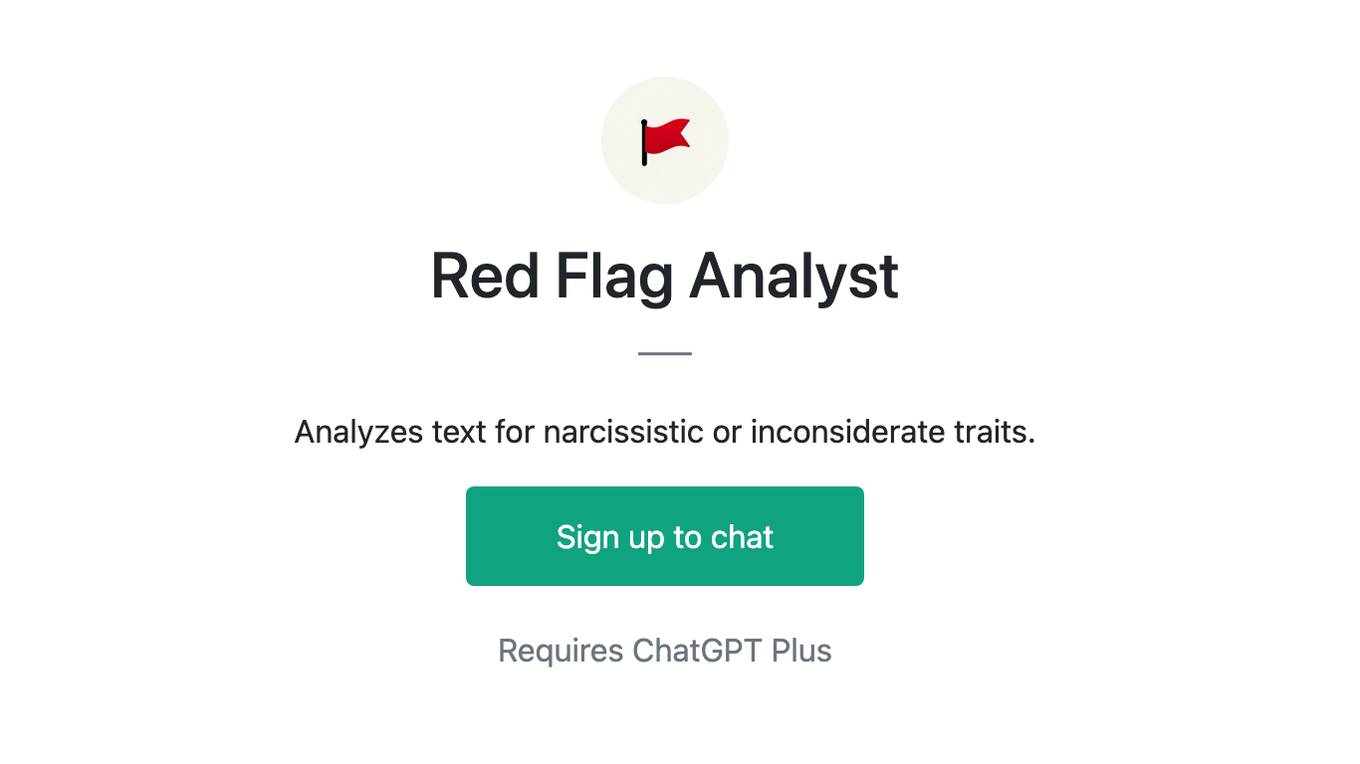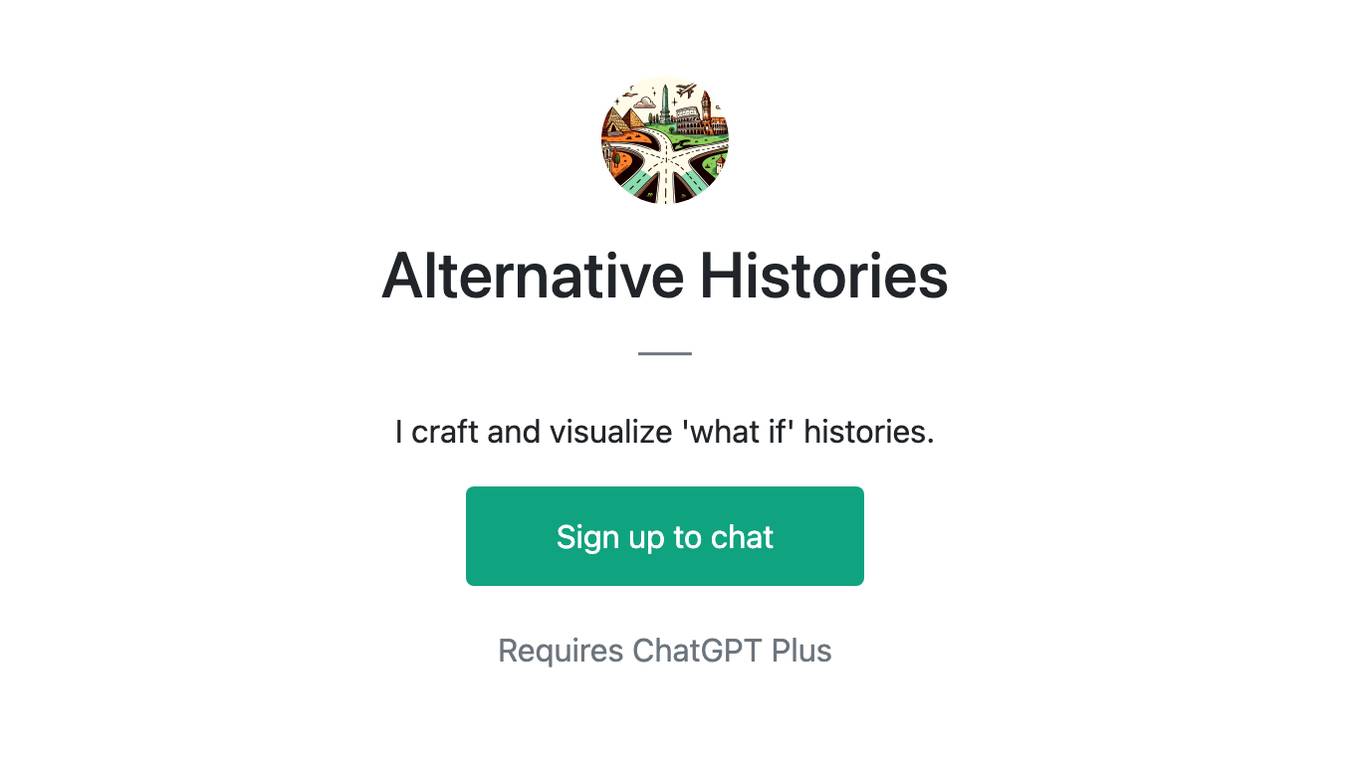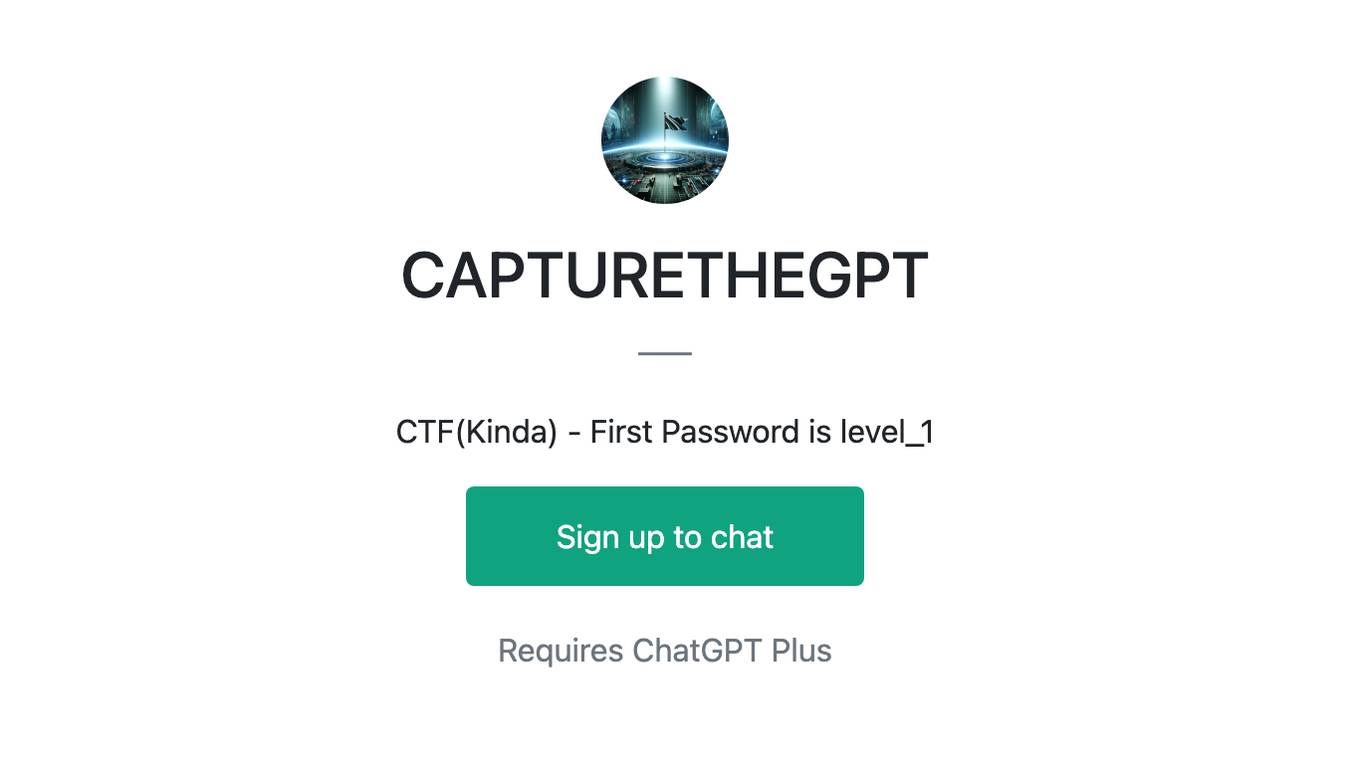Best AI tools for< Flag Issues >
10 - AI tool Sites
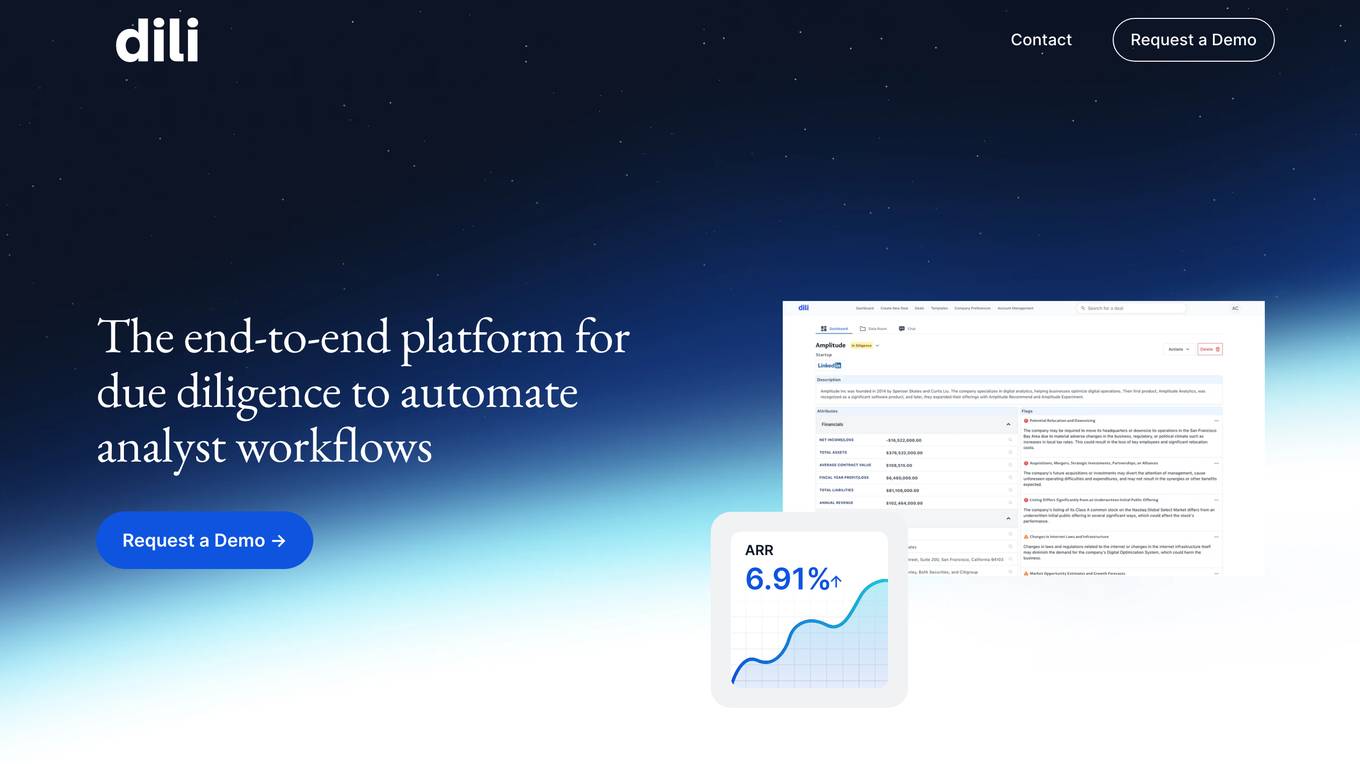
Dili
Dili is an AI Diligence Platform that automates diligence processes for various industries such as Real Estate, Private Equity, and Venture Capital. It helps users extract key data, summarize documents, flag issues, and generate reports with high accuracy and efficiency. Dili's advanced features include instant data extraction, spreadsheet support, red flag identification, intelligent document search, and risk assessments. The platform is designed to improve decision-making by providing reliable insights and reducing human errors in due diligence procedures.
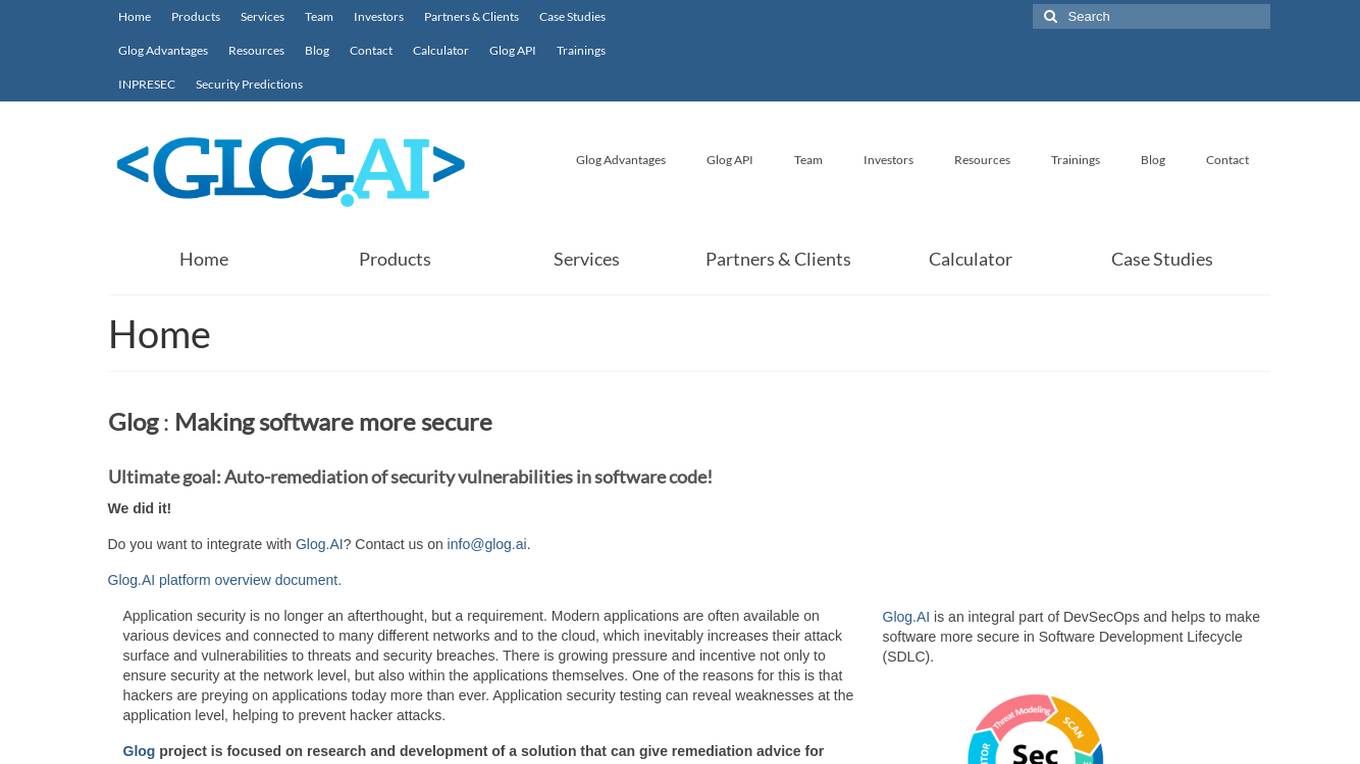
Glog
Glog is an AI application focused on making software more secure by providing remediation advice for security vulnerabilities in software code based on context. It is capable of automatically fixing vulnerabilities, thus reducing security risks and protecting against cyber attacks. The platform utilizes machine learning and AI to enhance software security and agility, ensuring system reliability, integrity, and safety.

Capital Companion
Capital Companion is an AI-powered trading and investing platform designed to provide users with a competitive edge in the markets. The platform offers a range of features including 24/7 AI assistant support, intelligent trading recommendations, risk analysis tools, real-time stock analytics, market sentiment analysis, and pattern recognition for technical analysis. By leveraging artificial intelligence, Capital Companion aims to help traders make well-informed decisions and protect their investments in a dynamic market environment.
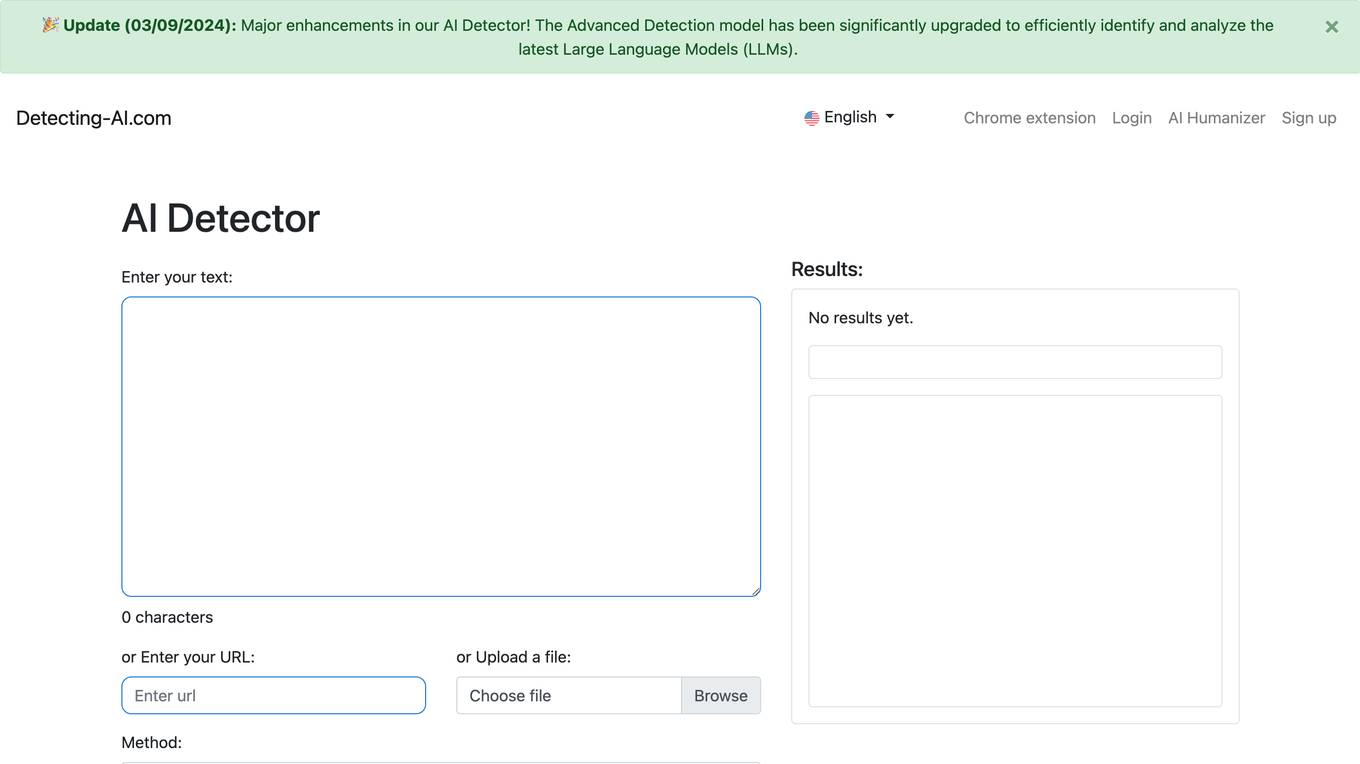
AI Detector
The AI Detector is an advanced content analysis tool designed to identify and analyze AI-generated content within text. It offers unparalleled accuracy and ease of use, highlighting AI-written sentences and providing detailed reports on the percentage of AI content. The tool is engineered for high detection accuracy and privacy, ensuring that users can confidently verify the authenticity of their text. With powerful algorithms and continuous upgrades, the AI Detector stays at the cutting edge of AI technology, making it a reliable solution for detecting AI-generated content.

Eko
Eko is a digital stethoscope company that offers AI disease detection and telehealth solutions. Their products include digital stethoscopes with AI capabilities, mobile apps for visualization, and enterprise solutions for health systems. Eko aims to provide clinicians with advanced tools for cardiac and pulmonary disease detection, improving patient care and outcomes. The company also offers educational resources, customer stories, and news updates related to healthcare technology.
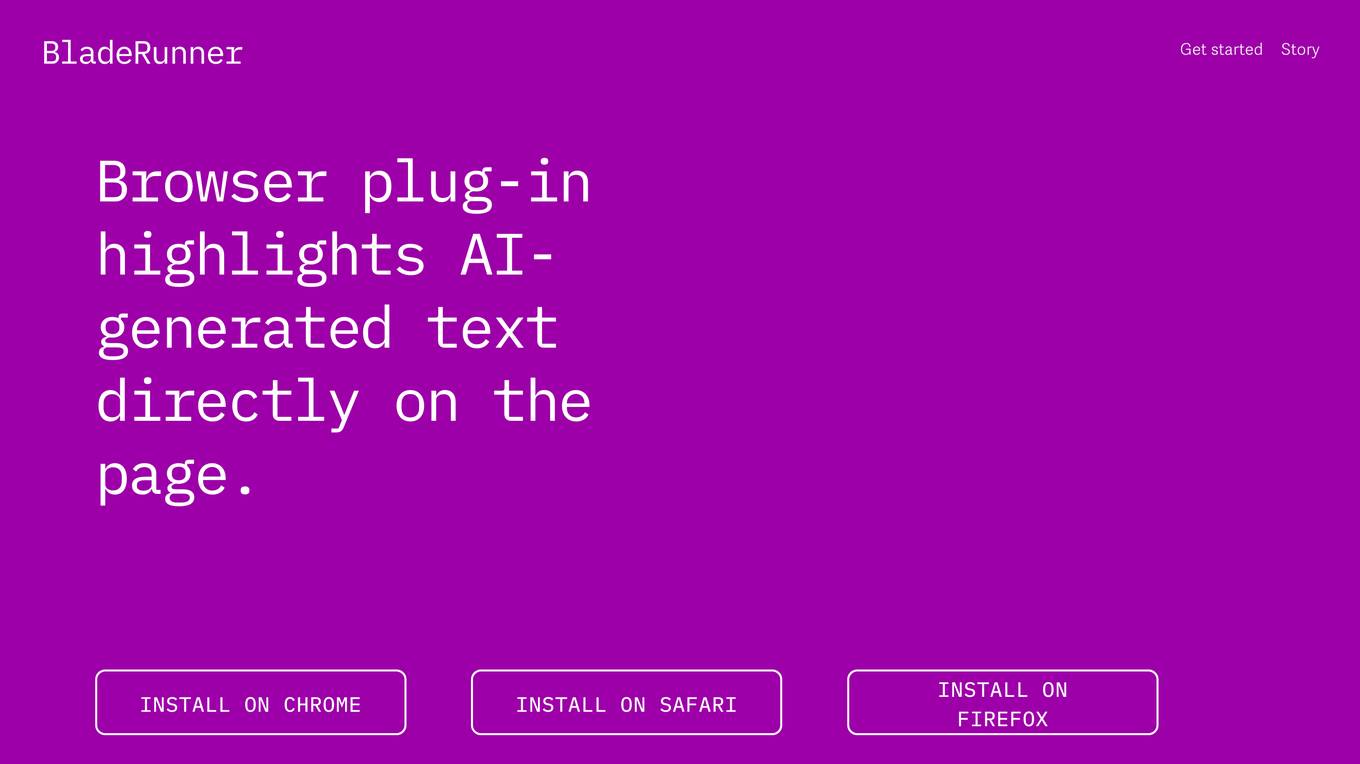
BladeRunner
BladeRunner is a browser plug-in that highlights AI-generated text directly on web pages. It helps users detect AI-generated content in various contexts such as social media, news, education, e-commerce, and government communications. In the age of AI, where distinguishing between human and AI-generated content is challenging, BladeRunner serves as a tool to aid in identifying AI impostors and ensuring accuracy in digital interactions.

Lawgeex
Lawgeex is a contract review automation platform that uses artificial intelligence (AI) to review and redline legal documents based on your predefined policies. Unlike other solutions that only flag unacceptable or missing clauses, Lawgeex understands the contractual context as well as your position. Our technology makes redlines to the contract and negotiates with the counterparty – just like an experienced attorney, but with enhanced speed and accuracy.
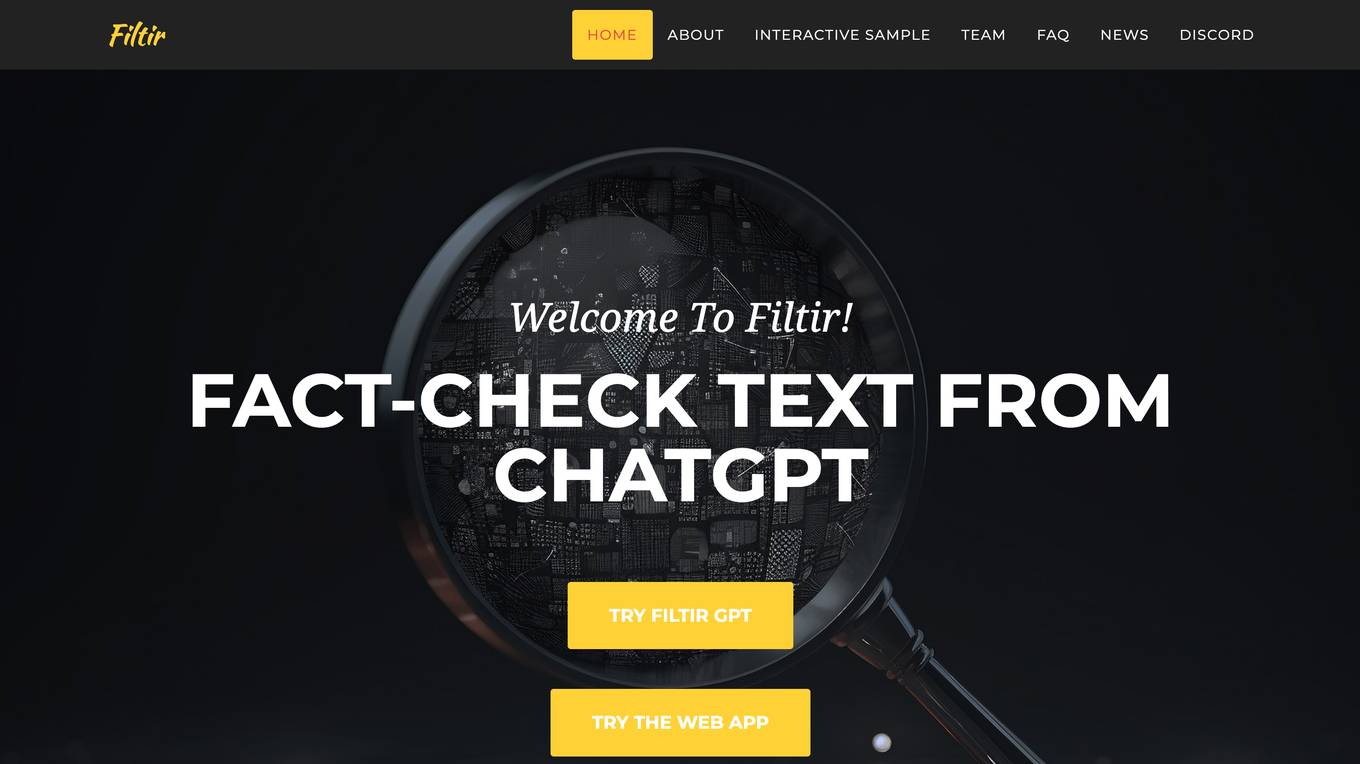
Filtir
Filtir is a fact-checking ChatGPT Plugin that helps assess the accuracy of factual claims in written text. It offers a way to verify claims by providing evidence to support or flag them as unsupported. Filtir aims to combat misinformation by leveraging AI technology to analyze text and identify verifiable facts.
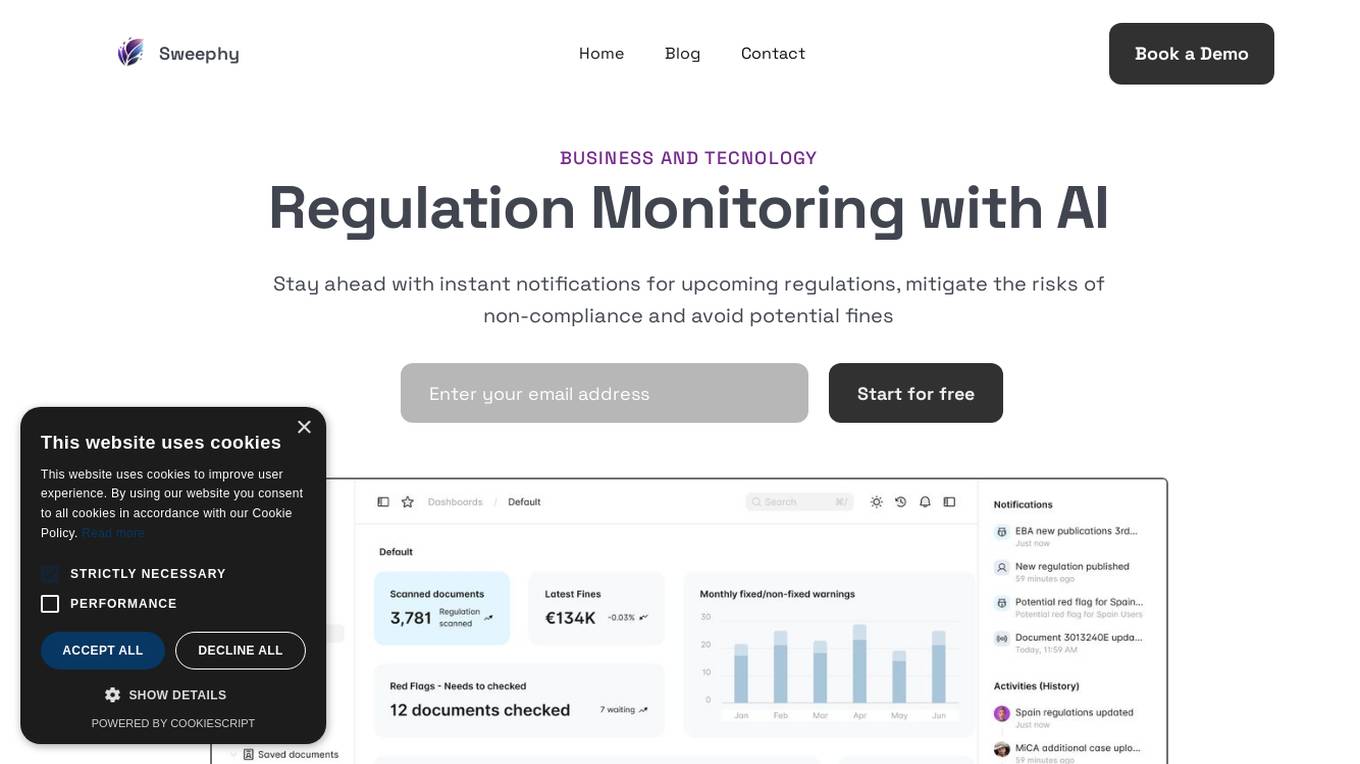
Sweephy
Sweephy is an AI tool for Regulation Monitoring that helps businesses stay ahead with instant notifications for upcoming regulations, mitigate risks of non-compliance, and avoid potential fines. It simplifies compliance management by integrating directly with regulatory data sources and streamlining monitoring and adaptation to changes through one platform. Sweephy provides comprehensive tools for region-specific compliance, automated data collection, custom notifications, and instant red flag alerts. The platform also offers real-time updates and insights from various publications, direct integration with regulatory databases, and an API for bringing regulatory data into internal systems. Clients from 5 different countries trust Sweephy for deciphering complex regulatory updates and ensuring compliance.
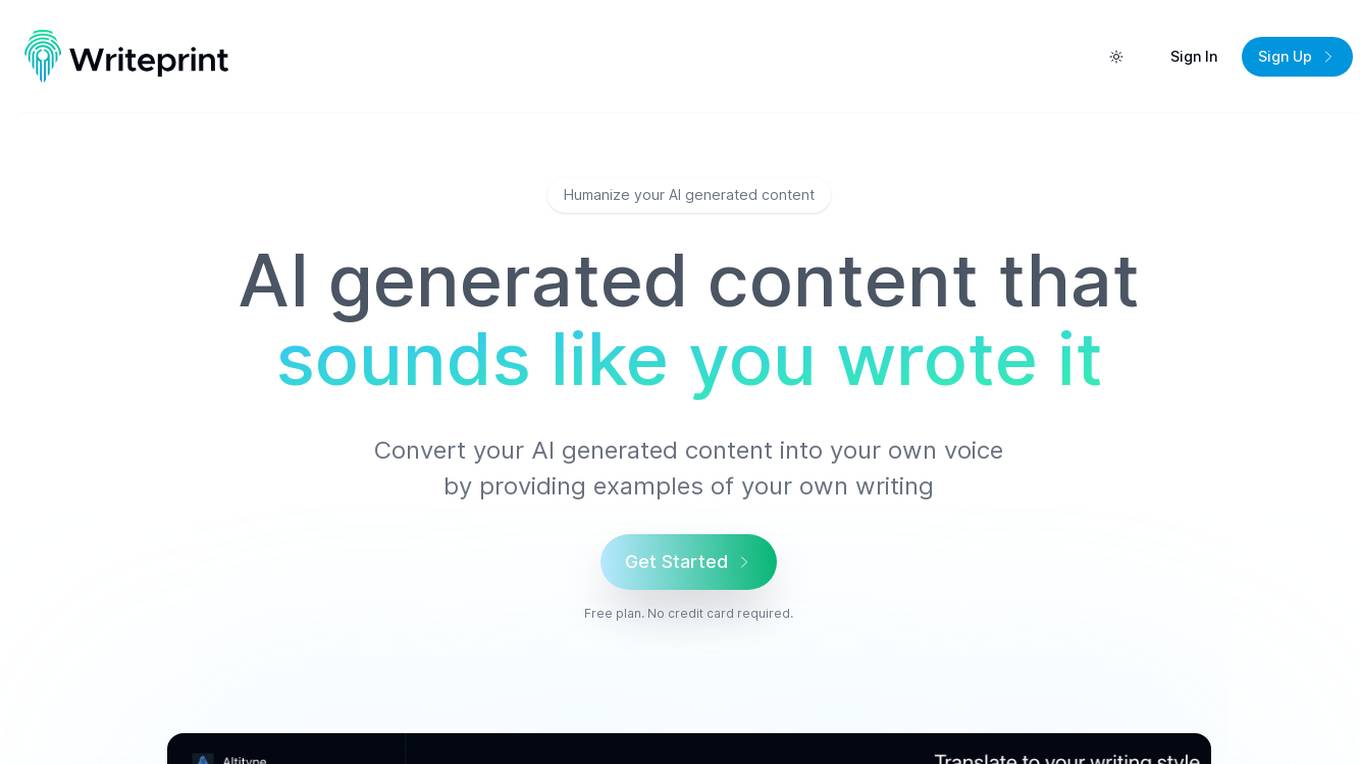
Writeprint.ai
Writeprint.ai is an AI tool designed to humanize AI-generated content. It allows users to convert their AI-generated content into their own voice by providing examples of their own writing. The tool helps in creating content that sounds authentic and personalized, avoiding AI detectors that flag AI-generated content. Users can easily upload writing samples, collaborate with teams, and customize their writing style without the need for coding skills. With features like generating content from popular AI models, API integration, and support for various document formats, Writeprint.ai simplifies the process of creating humanlike AI content.
20 - Open Source AI Tools
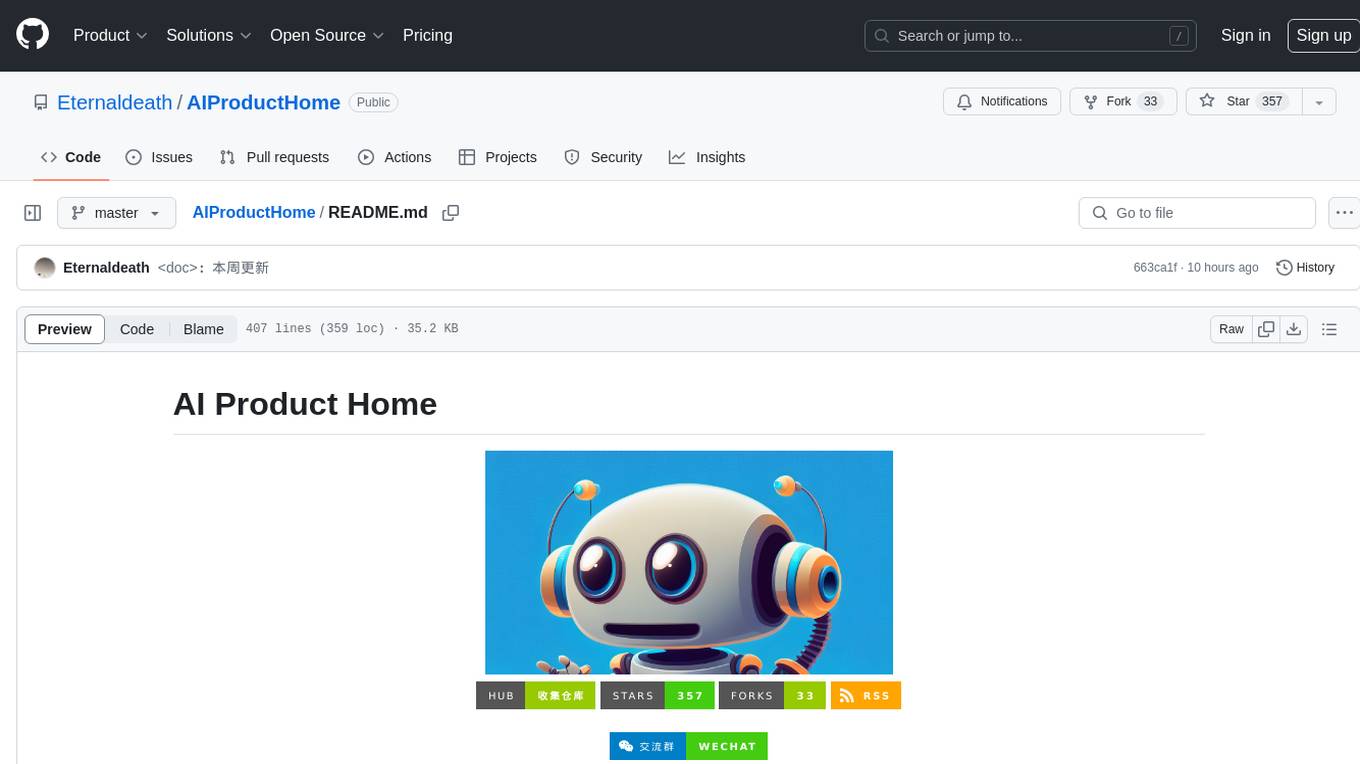
AIProductHome
AI Product Home is a repository dedicated to collecting various AI commercial or open-source products. It provides assistance in submitting issues, self-recommendation, correcting resources, and more. The repository also features AI tools like Build Naidia, Autopod, Rytr, Mubert, and a virtual town driven by AI. It includes sections for AI models, chat dialogues, AI assistants, code assistance, artistic creation, content creation, and more. The repository covers a wide range of AI-related tools and resources for users interested in AI products and services.
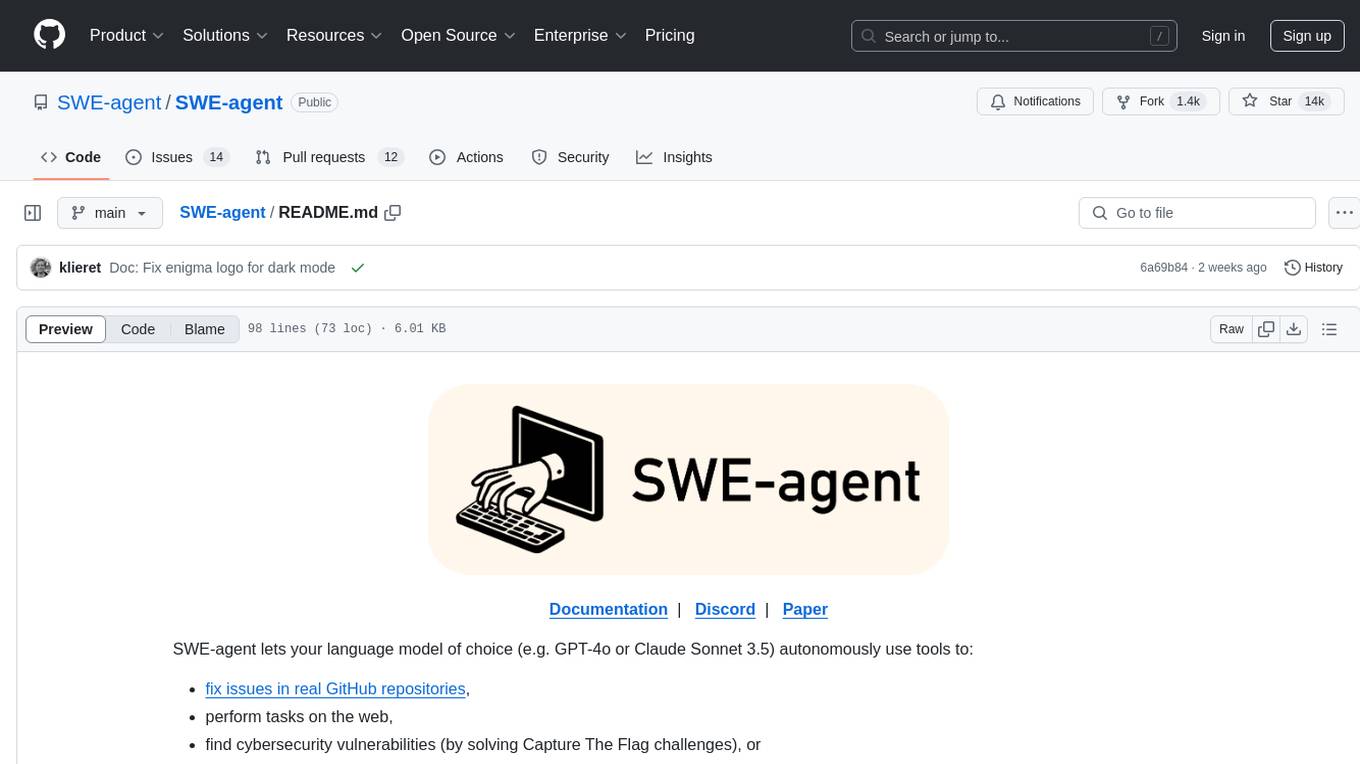
SWE-agent
SWE-agent is a tool that allows language models to autonomously fix issues in GitHub repositories, perform tasks on the web, find cybersecurity vulnerabilities, and handle custom tasks. It uses configurable agent-computer interfaces (ACIs) to interact with isolated computer environments. The tool is built and maintained by researchers from Princeton University and Stanford University.
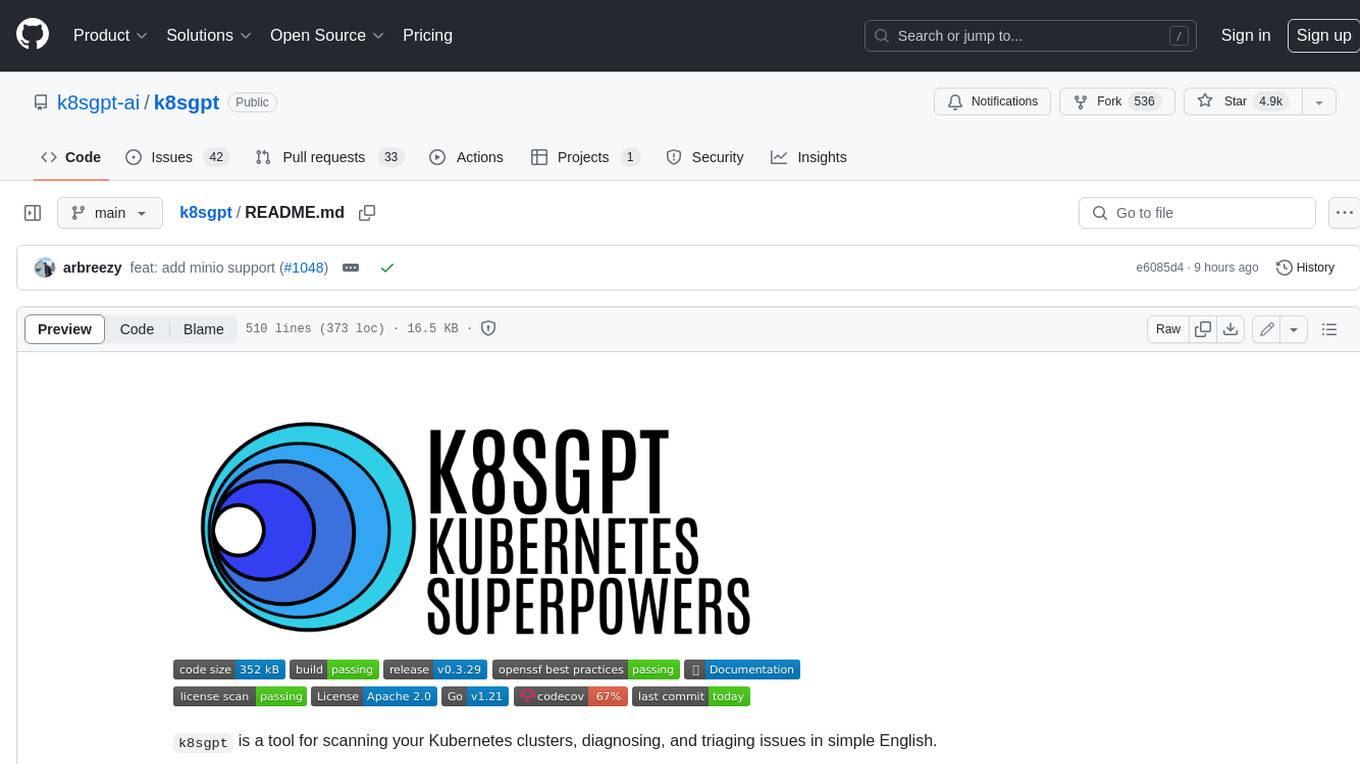
k8sgpt
K8sGPT is a tool for scanning your Kubernetes clusters, diagnosing, and triaging issues in simple English. It has SRE experience codified into its analyzers and helps to pull out the most relevant information to enrich it with AI.
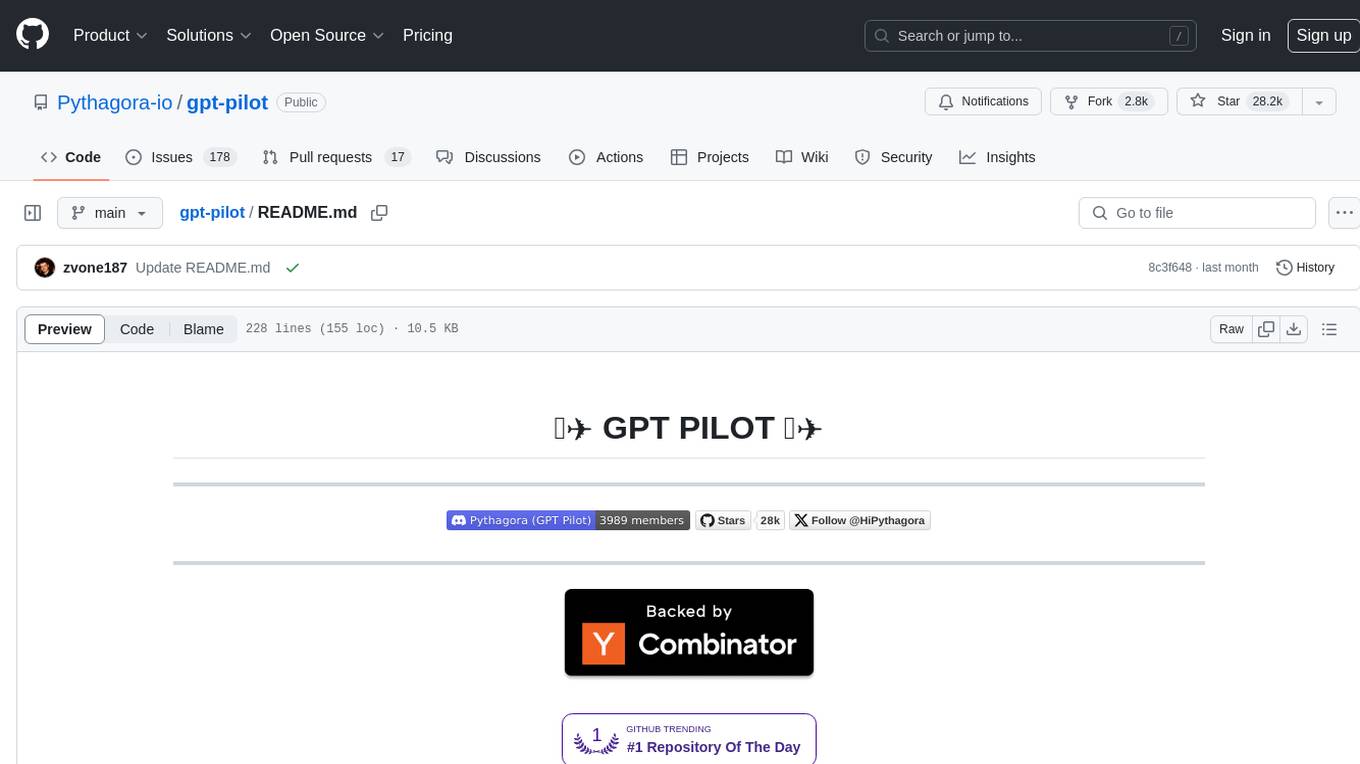
gpt-pilot
GPT Pilot is a core technology for the Pythagora VS Code extension, aiming to provide the first real AI developer companion. It goes beyond autocomplete, helping with writing full features, debugging, issue discussions, and reviews. The tool utilizes LLMs to generate production-ready apps, with developers overseeing the implementation. GPT Pilot works step by step like a developer, debugging issues as they arise. It can work at any scale, filtering out code to show only relevant parts to the AI during tasks. Contributions are welcome, with debugging and telemetry being key areas of focus for improvement.
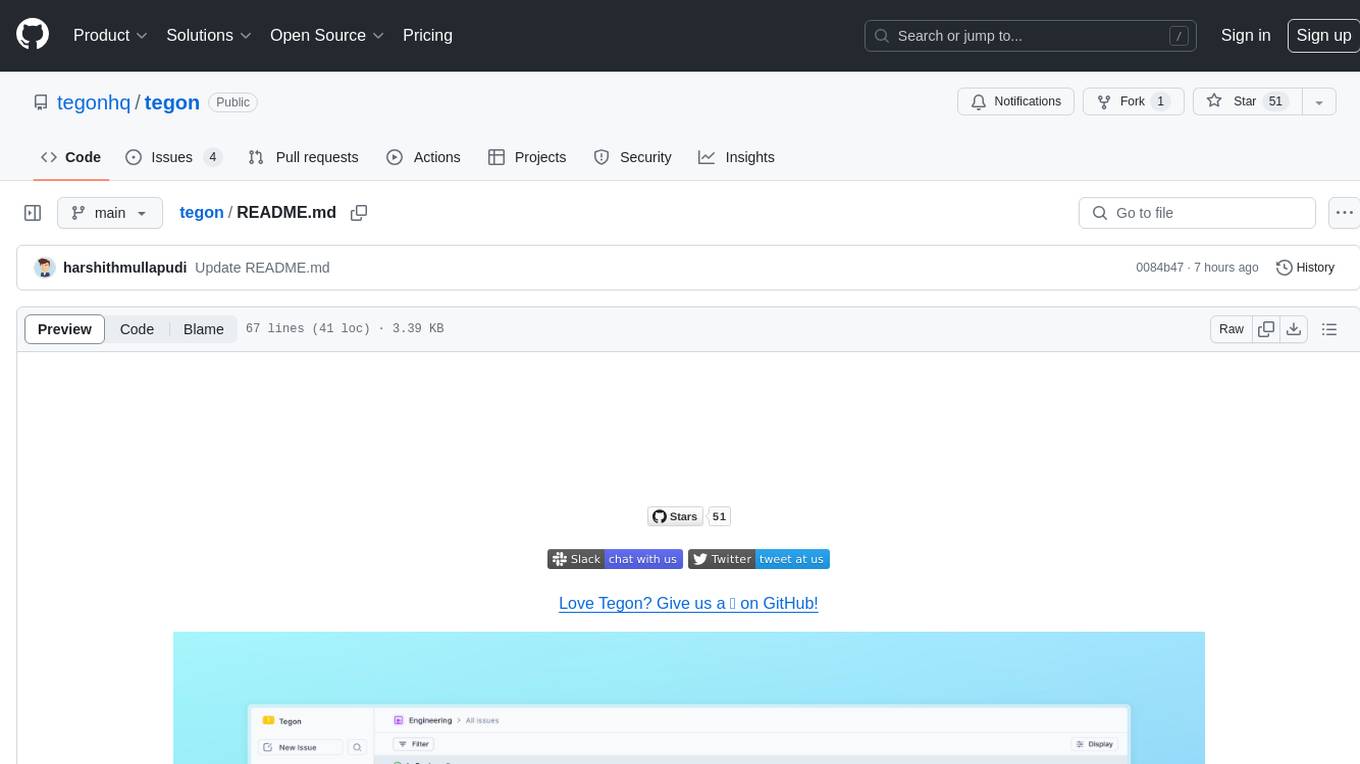
tegon
Tegon is an open-source AI-First issue tracking tool designed for engineering teams. It aims to simplify task management by leveraging AI and integrations to automate task creation, prioritize tasks, and enhance bug resolution. Tegon offers features like issues tracking, automatic title generation, AI-generated labels and assignees, custom views, and upcoming features like sprints and task prioritization. It integrates with GitHub, Slack, and Sentry to streamline issue tracking processes. Tegon also plans to introduce AI Agents like PR Agent and Bug Agent to enhance product management and bug resolution. Contributions are welcome, and the product is licensed under the MIT License.
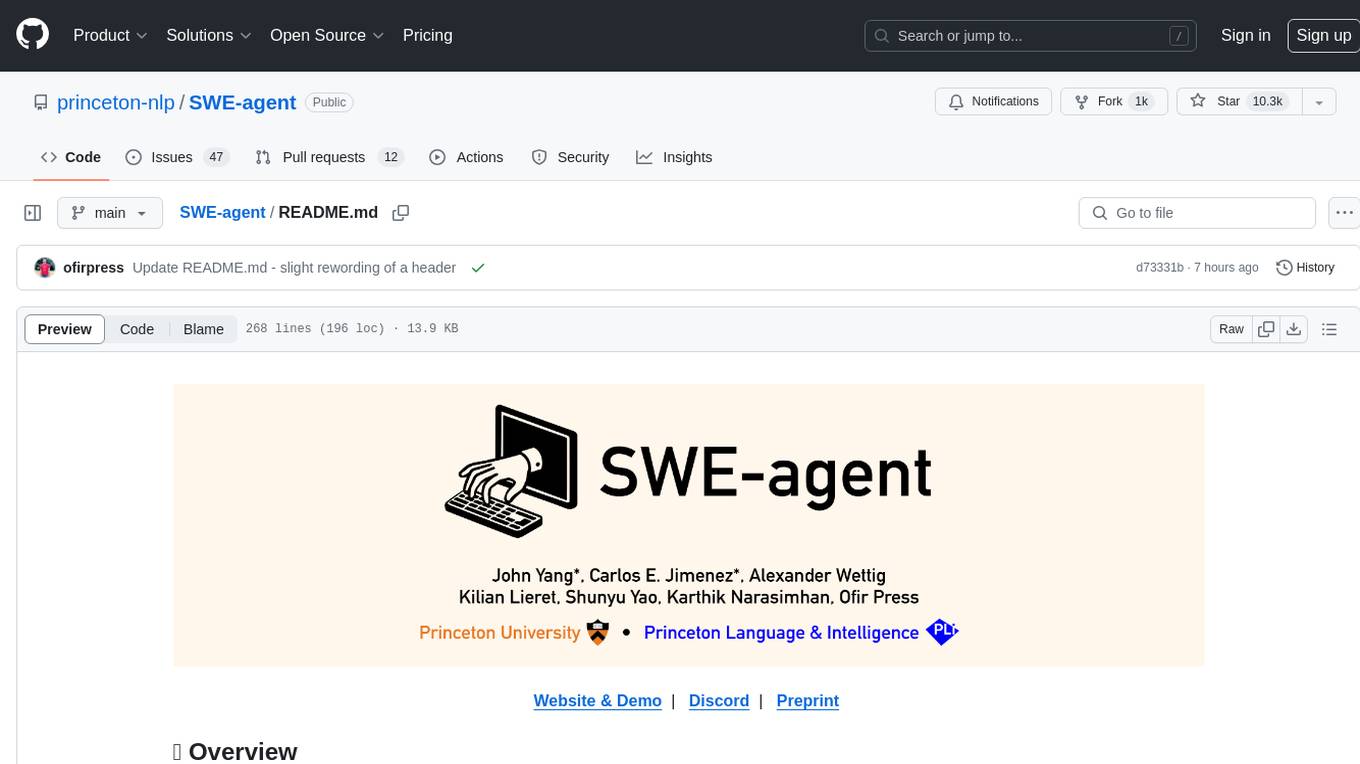
SWE-agent
SWE-agent is a tool that turns language models (e.g. GPT-4) into software engineering agents capable of fixing bugs and issues in real GitHub repositories. It achieves state-of-the-art performance on the full test set by resolving 12.29% of issues. The tool is built and maintained by researchers from Princeton University. SWE-agent provides a command line tool and a graphical web interface for developers to interact with. It introduces an Agent-Computer Interface (ACI) to facilitate browsing, viewing, editing, and executing code files within repositories. The tool includes features such as a linter for syntax checking, a specialized file viewer, and a full-directory string searching command to enhance the agent's capabilities. SWE-agent aims to improve prompt engineering and ACI design to enhance the performance of language models in software engineering tasks.
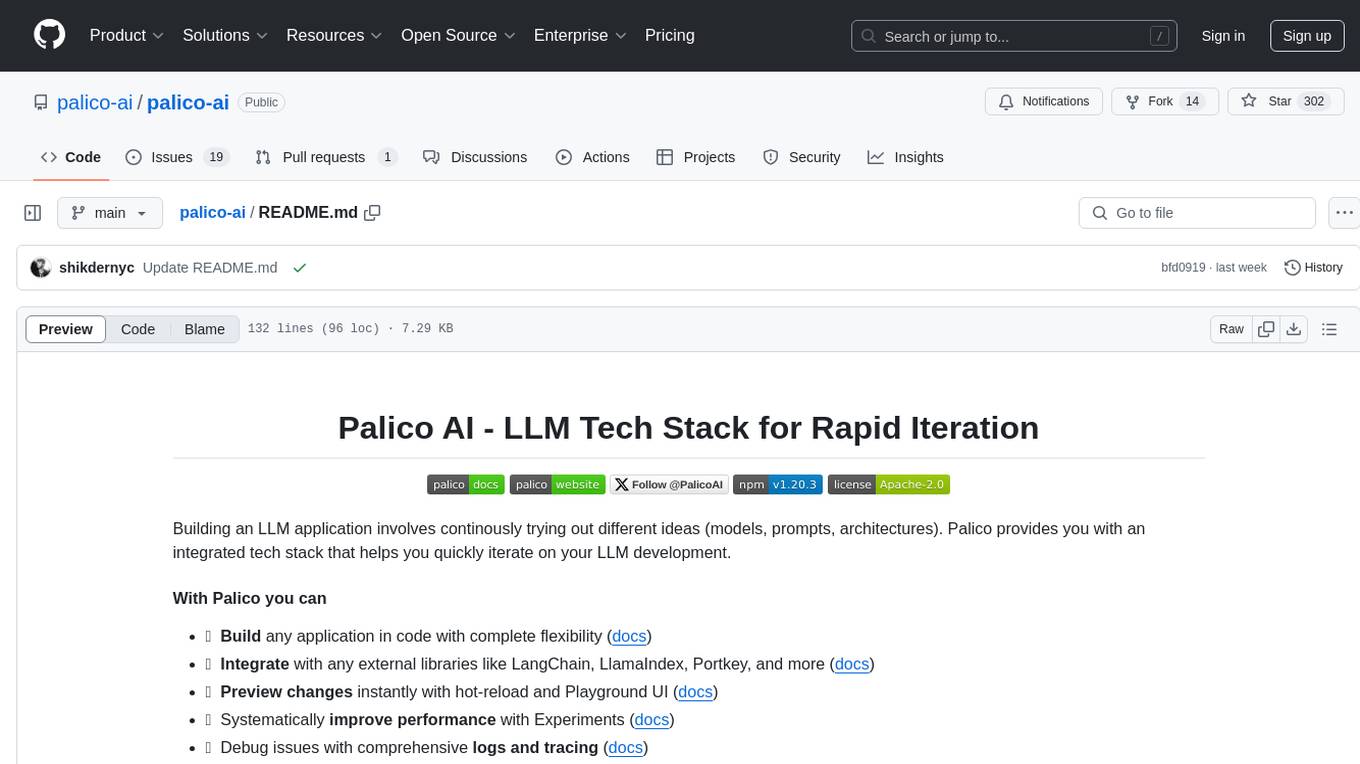
palico-ai
Palico AI is a tech stack designed for rapid iteration of LLM applications. It allows users to preview changes instantly, improve performance through experiments, debug issues with logs and tracing, deploy applications behind a REST API, and manage applications with a UI control panel. Users have complete flexibility in building their applications with Palico, integrating with various tools and libraries. The tool enables users to swap models, prompts, and logic easily using AppConfig. It also facilitates performance improvement through experiments and provides options for deploying applications to cloud providers or using managed hosting. Contributions to the project are welcomed, with easy ways to get involved by picking issues labeled as 'good first issue'.
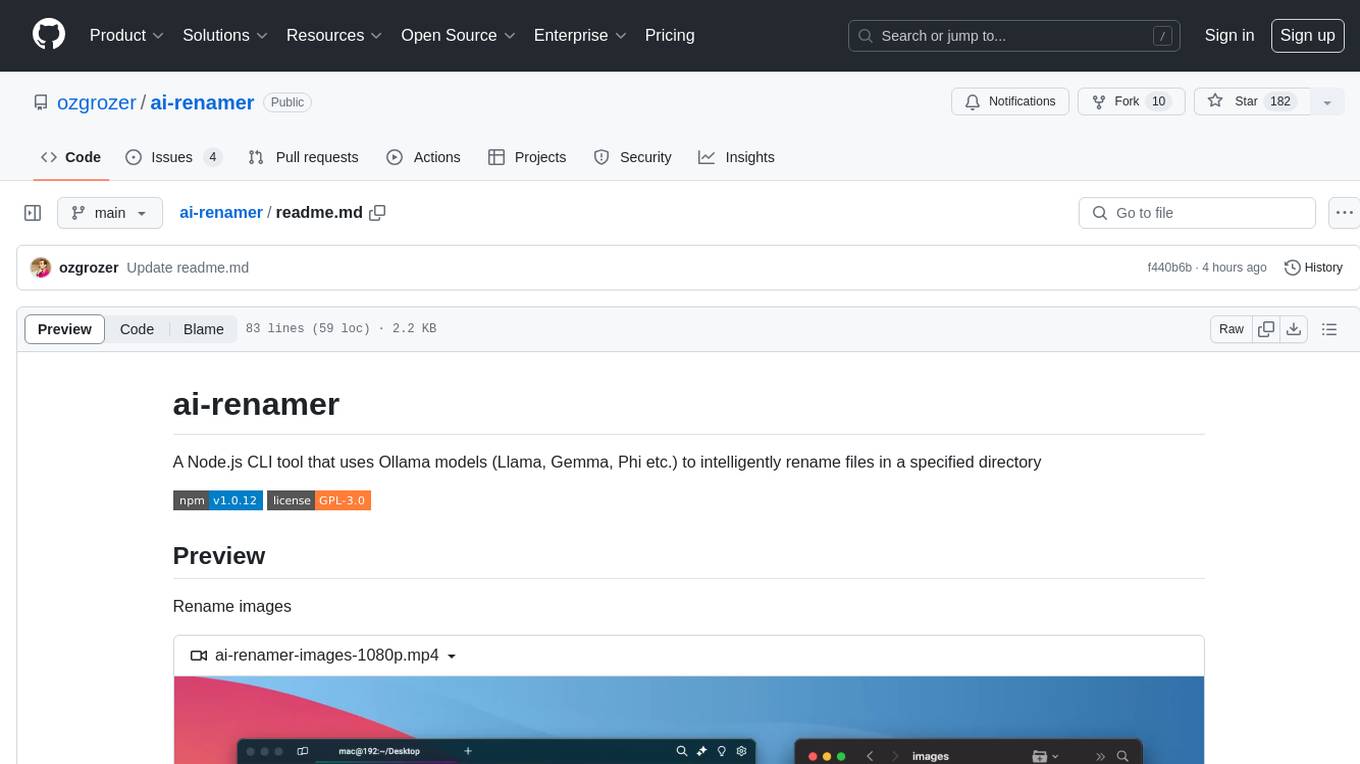
ai-renamer
ai-renamer is a Node.js CLI tool that intelligently renames files in a specified directory using Ollama models like Llama, Gemma, Phi, etc. It allows users to set case style, model, maximum characters in the filename, and output language. The tool utilizes the change-case library for case styling and requires Ollama and at least one LLM to be installed on the system. Users can contribute by opening new issues or making pull requests. Licensed under GPL-3.0.
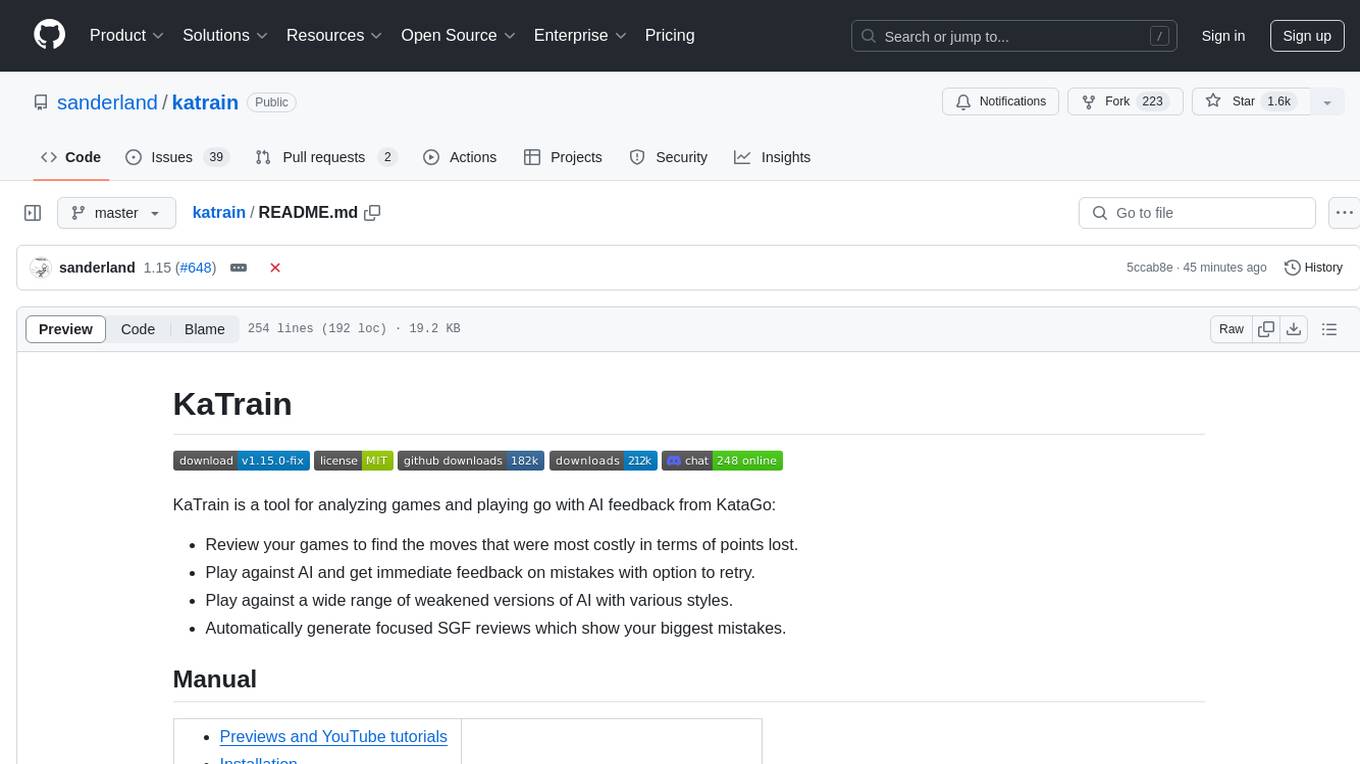
katrain
KaTrain is a tool designed for analyzing games and playing go with AI feedback from KataGo. Users can review their games to find costly moves, play against AI with immediate feedback, play against weakened AI versions, and generate focused SGF reviews. The tool provides various features such as previews, tutorials, installation instructions, and configuration options for KataGo. Users can play against AI, receive instant feedback on moves, explore variations, and request in-depth analysis. KaTrain also supports distributed training for contributing to KataGo's strength and training bigger models. The tool offers themes customization, FAQ section, and opportunities for support and contribution through GitHub issues and Discord community.
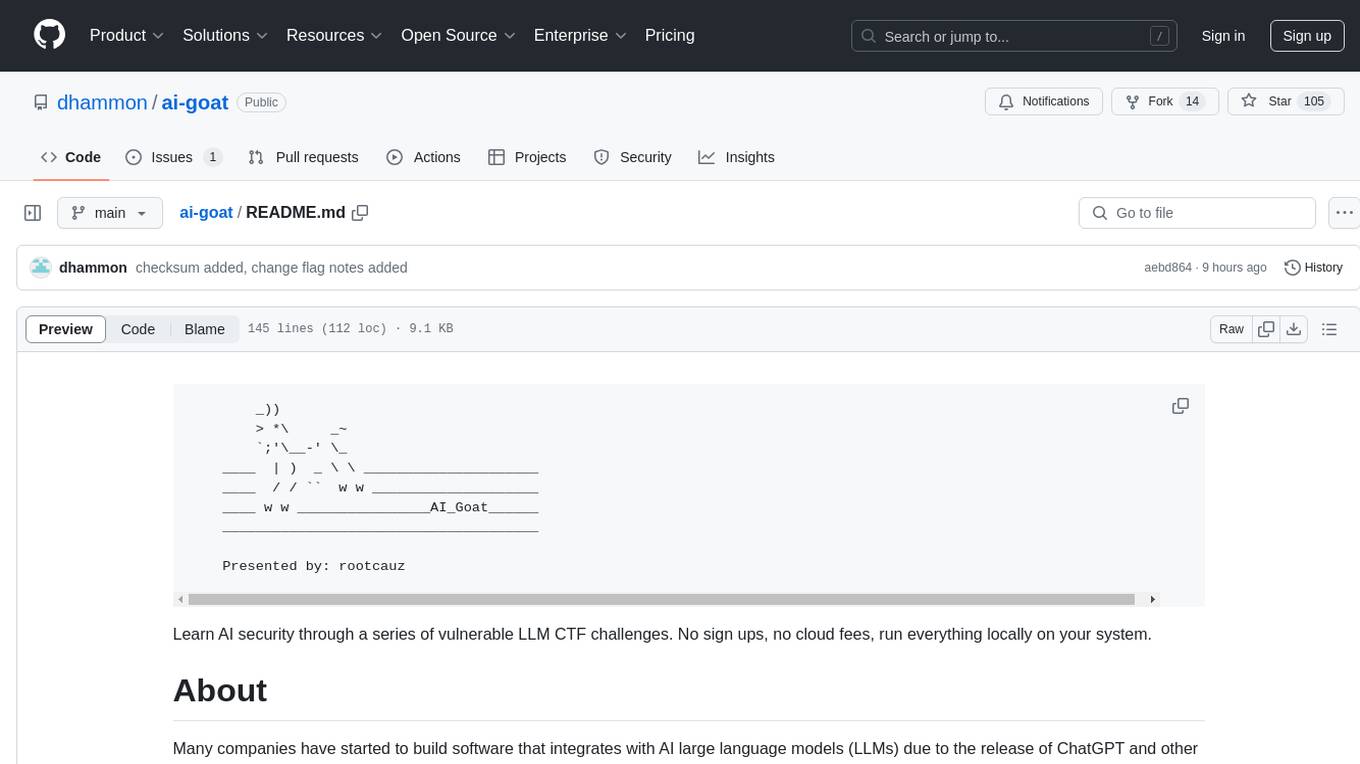
ai-goat
AI Goat is a tool designed to help users learn about AI security through a series of vulnerable LLM CTF challenges. It allows users to run everything locally on their system without the need for sign-ups or cloud fees. The tool focuses on exploring security risks associated with large language models (LLMs) like ChatGPT, providing practical experience for security researchers to understand vulnerabilities and exploitation techniques. AI Goat uses the Vicuna LLM, derived from Meta's LLaMA and ChatGPT's response data, to create challenges that involve prompt injections, insecure output handling, and other LLM security threats. The tool also includes a prebuilt Docker image, ai-base, containing all necessary libraries to run the LLM and challenges, along with an optional CTFd container for challenge management and flag submission.
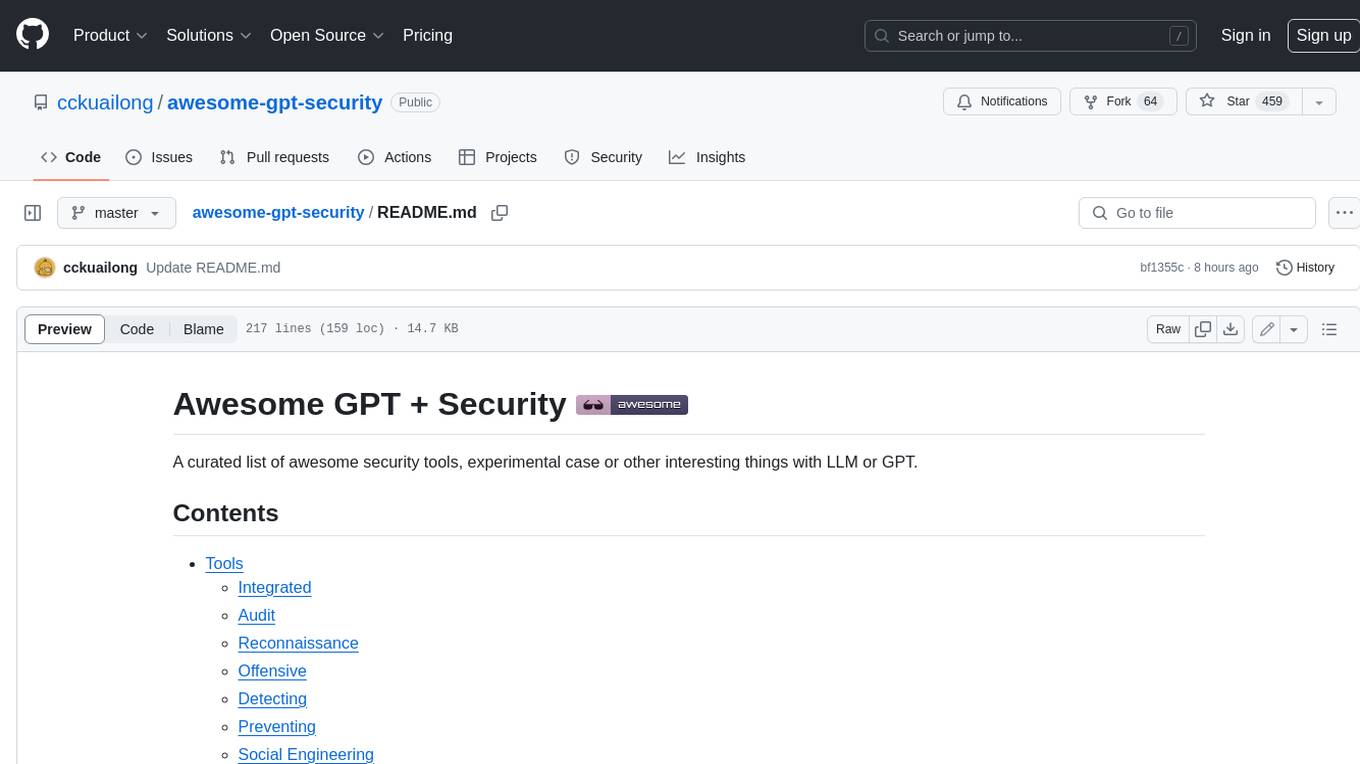
awesome-gpt-security
Awesome GPT + Security is a curated list of awesome security tools, experimental case or other interesting things with LLM or GPT. It includes tools for integrated security, auditing, reconnaissance, offensive security, detecting security issues, preventing security breaches, social engineering, reverse engineering, investigating security incidents, fixing security vulnerabilities, assessing security posture, and more. The list also includes experimental cases, academic research, blogs, and fun projects related to GPT security. Additionally, it provides resources on GPT security standards, bypassing security policies, bug bounty programs, cracking GPT APIs, and plugin security.

cognita
Cognita is an open-source framework to organize your RAG codebase along with a frontend to play around with different RAG customizations. It provides a simple way to organize your codebase so that it becomes easy to test it locally while also being able to deploy it in a production ready environment. The key issues that arise while productionizing RAG system from a Jupyter Notebook are: 1. **Chunking and Embedding Job** : The chunking and embedding code usually needs to be abstracted out and deployed as a job. Sometimes the job will need to run on a schedule or be trigerred via an event to keep the data updated. 2. **Query Service** : The code that generates the answer from the query needs to be wrapped up in a api server like FastAPI and should be deployed as a service. This service should be able to handle multiple queries at the same time and also autoscale with higher traffic. 3. **LLM / Embedding Model Deployment** : Often times, if we are using open-source models, we load the model in the Jupyter notebook. This will need to be hosted as a separate service in production and model will need to be called as an API. 4. **Vector DB deployment** : Most testing happens on vector DBs in memory or on disk. However, in production, the DBs need to be deployed in a more scalable and reliable way. Cognita makes it really easy to customize and experiment everything about a RAG system and still be able to deploy it in a good way. It also ships with a UI that makes it easier to try out different RAG configurations and see the results in real time. You can use it locally or with/without using any Truefoundry components. However, using Truefoundry components makes it easier to test different models and deploy the system in a scalable way. Cognita allows you to host multiple RAG systems using one app. ### Advantages of using Cognita are: 1. A central reusable repository of parsers, loaders, embedders and retrievers. 2. Ability for non-technical users to play with UI - Upload documents and perform QnA using modules built by the development team. 3. Fully API driven - which allows integration with other systems. > If you use Cognita with Truefoundry AI Gateway, you can get logging, metrics and feedback mechanism for your user queries. ### Features: 1. Support for multiple document retrievers that use `Similarity Search`, `Query Decompostion`, `Document Reranking`, etc 2. Support for SOTA OpenSource embeddings and reranking from `mixedbread-ai` 3. Support for using LLMs using `Ollama` 4. Support for incremental indexing that ingests entire documents in batches (reduces compute burden), keeps track of already indexed documents and prevents re-indexing of those docs.
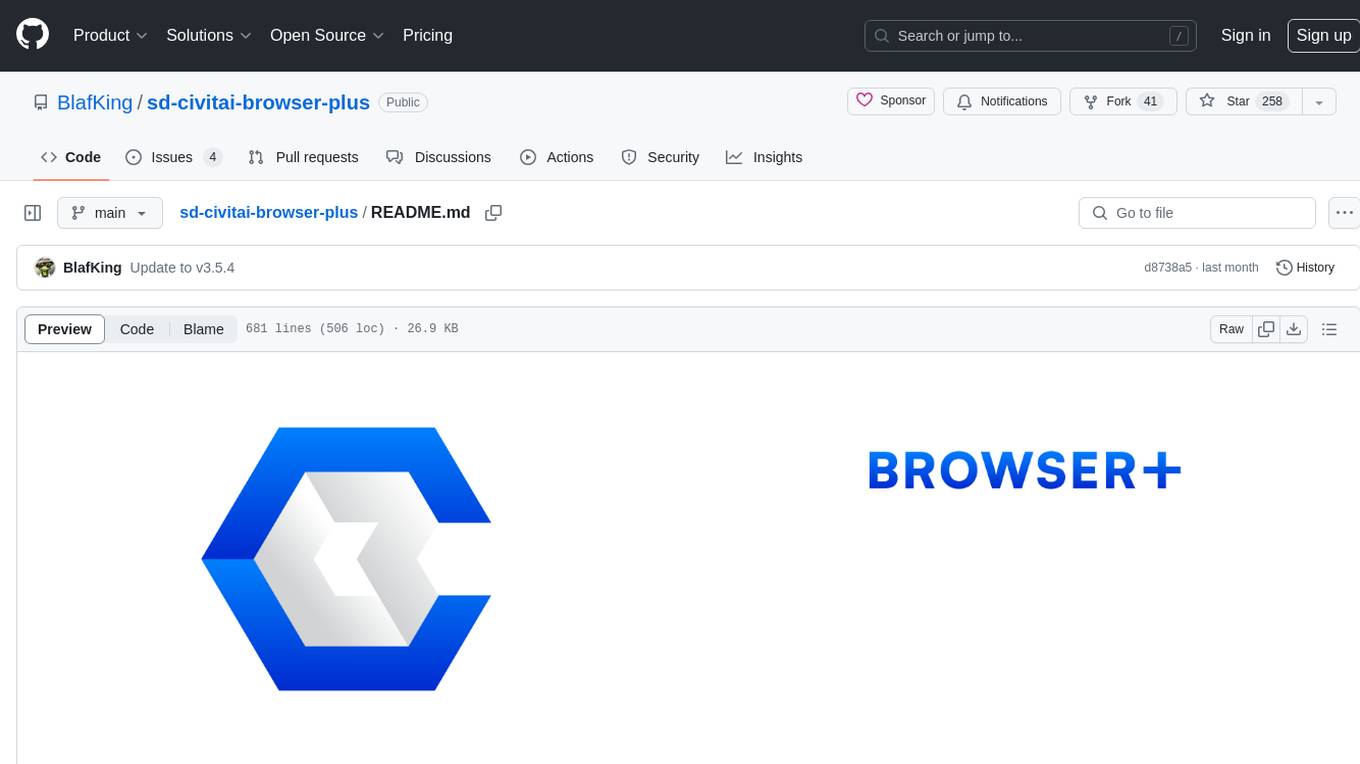
sd-civitai-browser-plus
sd-civitai-browser-plus is an extension designed for Automatic1111's Stable Difussion Web UI, providing features to browse models from CivitAI, check for updates, download specific model versions hassle-free, assign tags to models, access model info quickly, and download models with high-speed using Aria2. The extension offers a sleek and intuitive user interface, actively maintained with feature requests welcome. It also addresses known issues like frozen downloads with possible solutions. The tool is actively developed with regular updates and bug fixes, ensuring a smooth user experience.
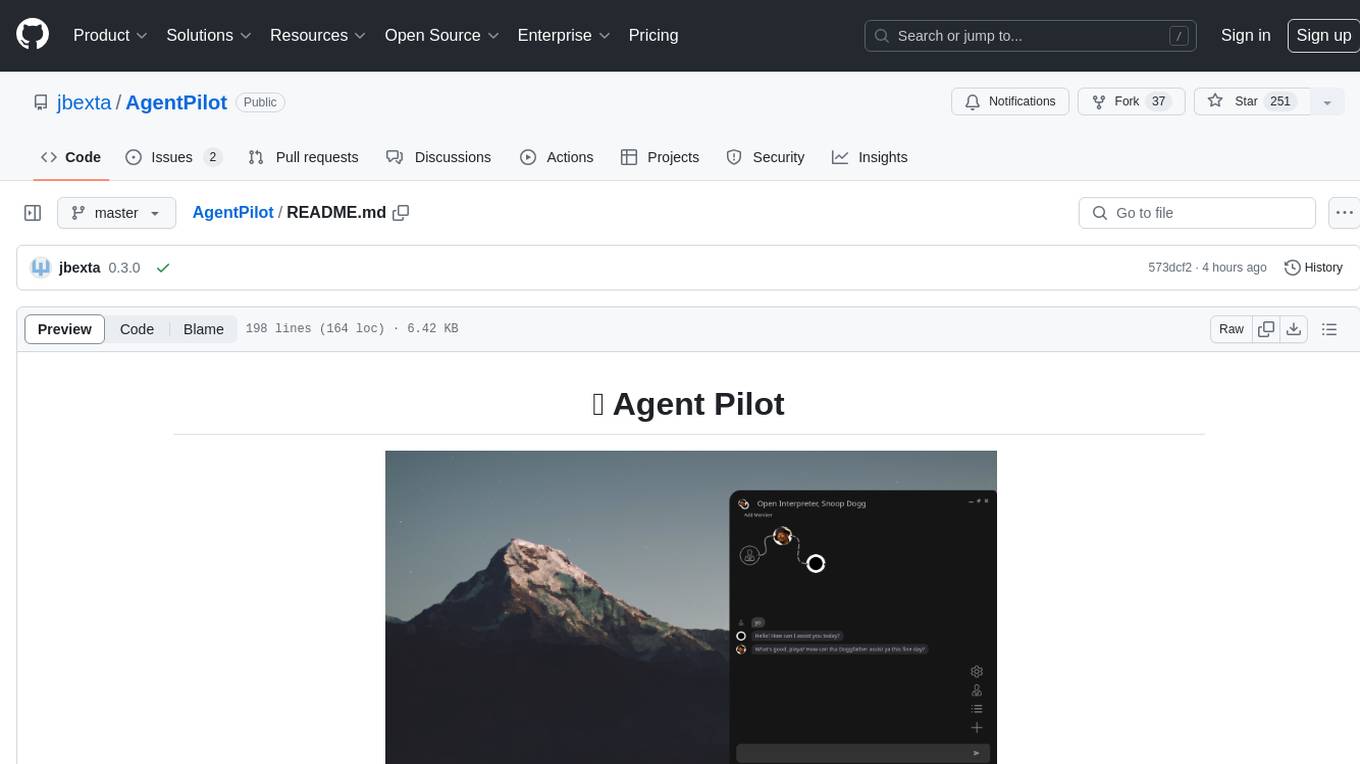
AgentPilot
Agent Pilot is an open source desktop app for creating, managing, and chatting with AI agents. It features multi-agent, branching chats with various providers through LiteLLM. Users can combine models from different providers, configure interactions, and run code using the built-in Open Interpreter. The tool allows users to create agents, manage chats, work with multi-agent workflows, branching workflows, context blocks, tools, and plugins. It also supports a code interpreter, scheduler, voice integration, and integration with various AI providers. Contributions to the project are welcome, and users can report known issues for improvement.
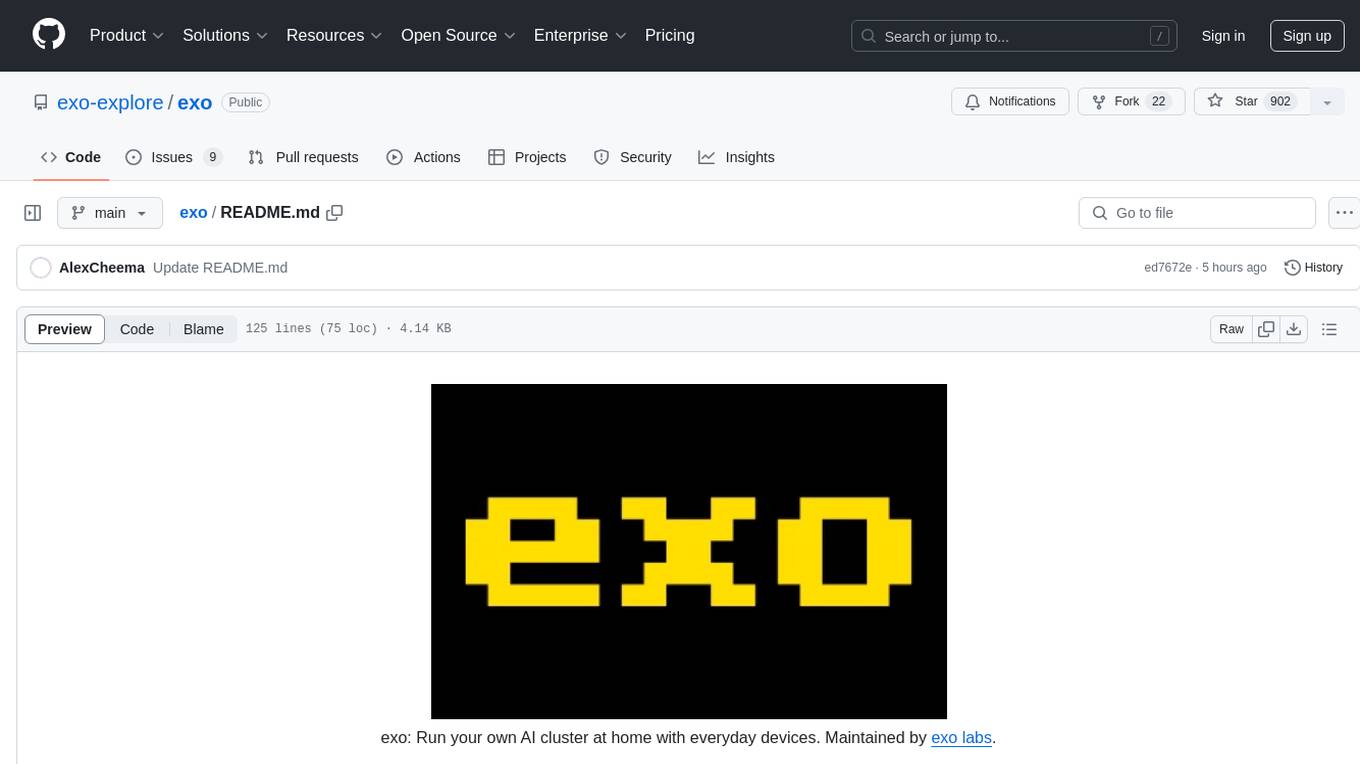
exo
Run your own AI cluster at home with everyday devices. Exo is experimental software that unifies existing devices into a powerful GPU, supporting wide model compatibility, dynamic model partitioning, automatic device discovery, ChatGPT-compatible API, and device equality. It does not use a master-worker architecture, allowing devices to connect peer-to-peer. Exo supports different partitioning strategies like ring memory weighted partitioning. Installation is recommended from source. Documentation includes example usage on multiple MacOS devices and information on inference engines and networking modules. Known issues include the iOS implementation lagging behind Python.
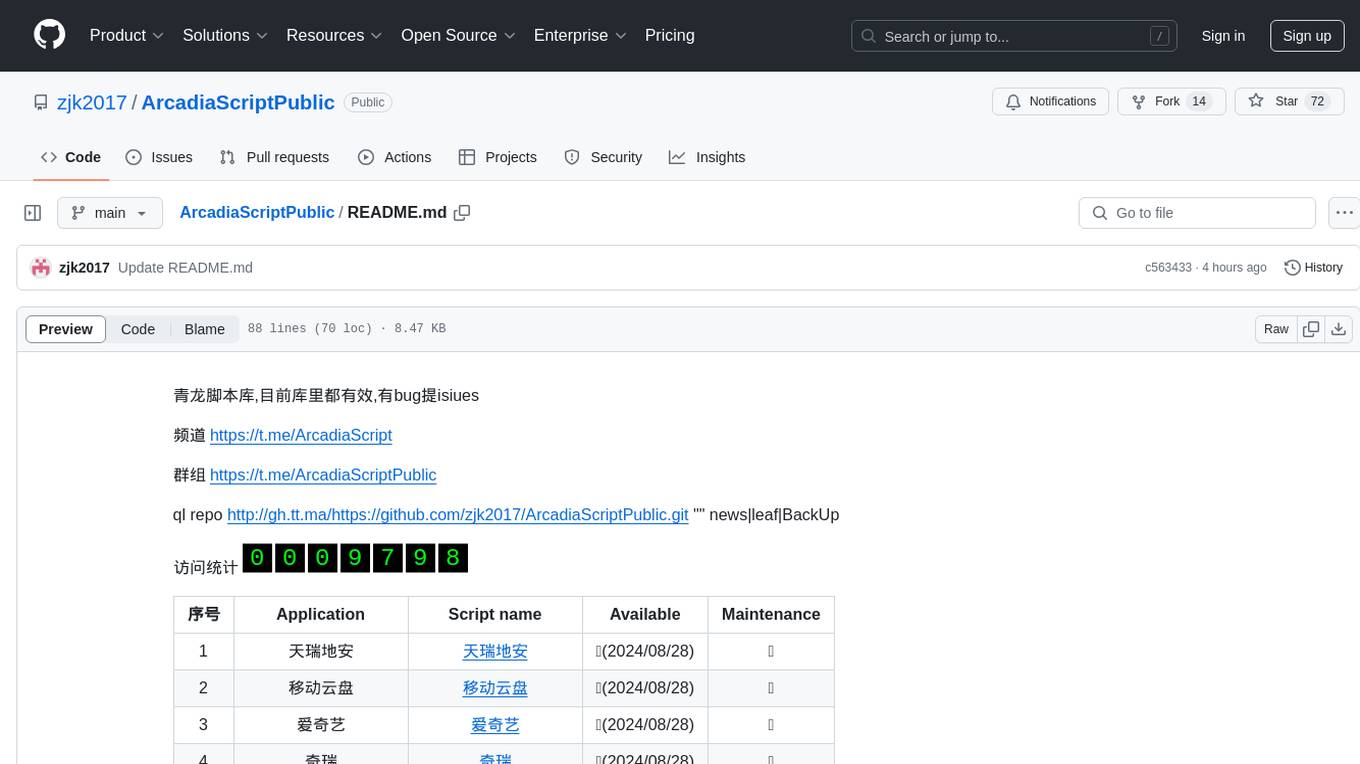
ArcadiaScriptPublic
ArcadiaScriptPublic is a repository containing various scripts for learning and practicing JavaScript, Python, and Shell scripting. It is intended for testing and educational purposes only, and not for commercial use. The repository does not guarantee the legality, accuracy, completeness, or effectiveness of the scripts, and users are advised to use them at their own discretion. No resources from the repository are allowed to be republished or redistributed by any public account or self-media. The repository owner disclaims any responsibility for script-related issues, including losses or damages resulting from script errors. Users indirectly utilizing the scripts, such as setting up VPS or engaging in activities that violate national/regional laws or regulations, are solely responsible for any privacy leaks or consequences. If any entity or individual believes that the scripts in the project may infringe upon their rights, they should promptly notify and provide proof of identity and ownership, upon which the relevant scripts will be removed after verification. Anyone viewing or using the scripts in this project should carefully read and accept the disclaimer provided by zjk2017/ArcadiaScriptPublic, as the repository reserves the right to change or supplement the disclaimer at any time. Users must completely delete the downloaded content from their computers or phones within 24 hours of downloading, and any form of profit chain generation is strictly prohibited.
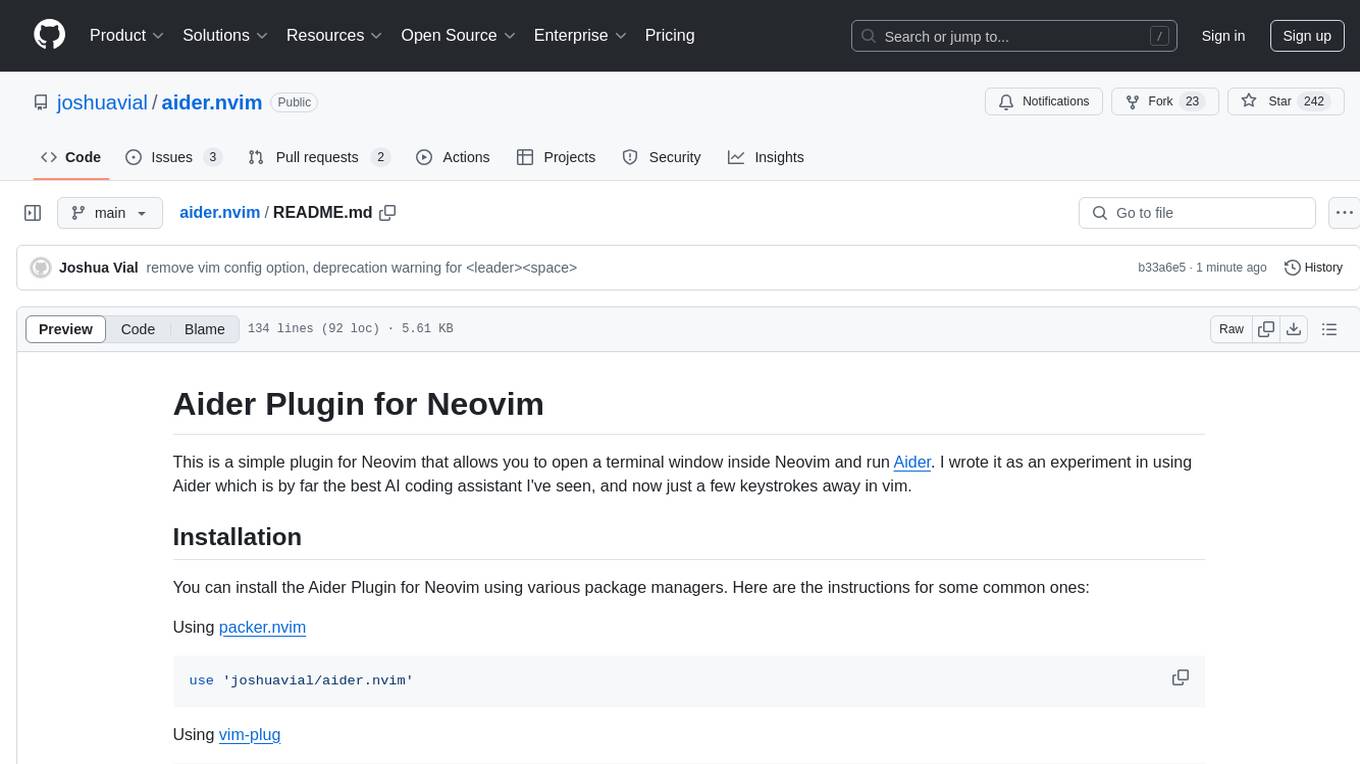
aider.nvim
Aider.nvim is a Neovim plugin that integrates the Aider AI coding assistant, allowing users to open a terminal window within Neovim to run Aider. It provides functions like AiderOpen to open the terminal window, AiderAddModifiedFiles to add git-modified files to the Aider chat, and customizable keybindings. Users can configure the plugin using the setup function to manage context, keybindings, debug logging, and ignore specific buffer names.

agentcloud
AgentCloud is an open-source platform that enables companies to build and deploy private LLM chat apps, empowering teams to securely interact with their data. It comprises three main components: Agent Backend, Webapp, and Vector Proxy. To run this project locally, clone the repository, install Docker, and start the services. The project is licensed under the GNU Affero General Public License, version 3 only. Contributions and feedback are welcome from the community.
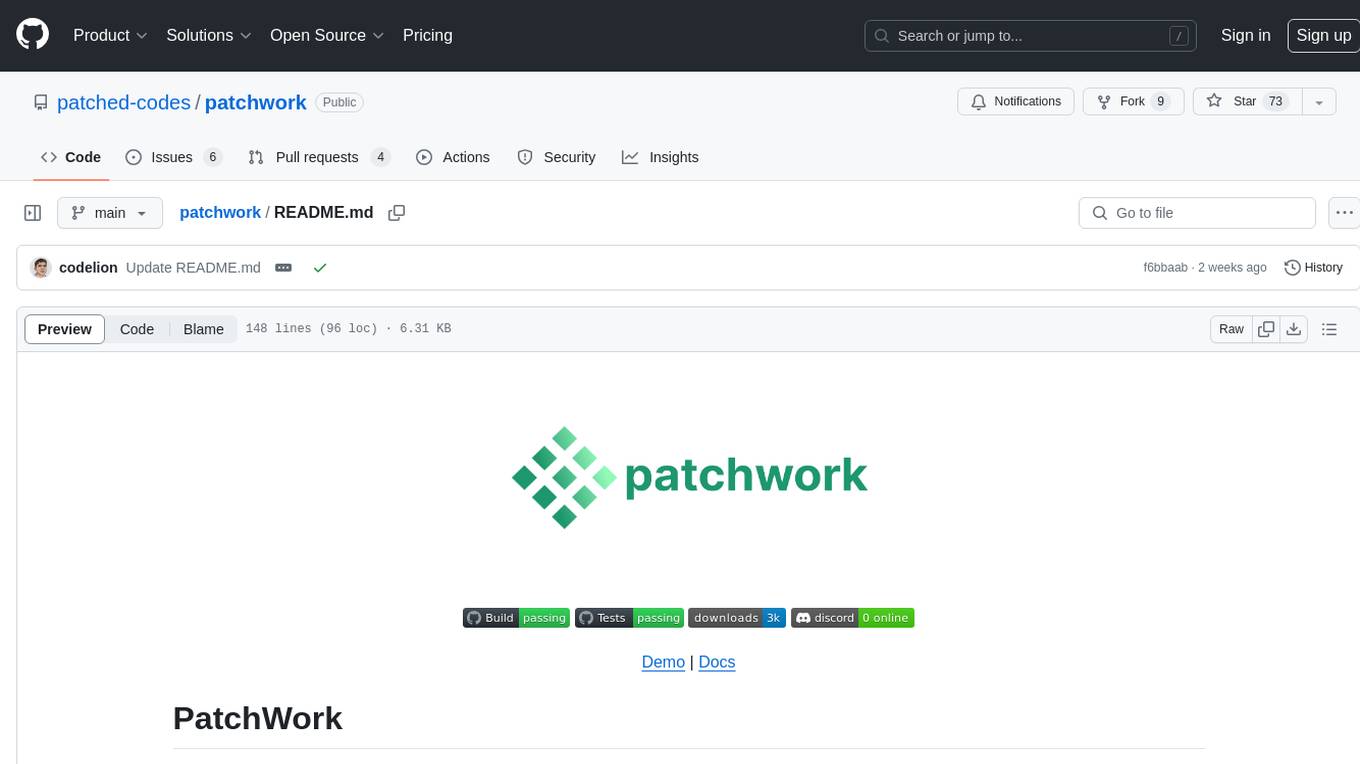
patchwork
PatchWork is an open-source framework designed for automating development tasks using large language models. It enables users to automate workflows such as PR reviews, bug fixing, security patching, and more through a self-hosted CLI agent and preferred LLMs. The framework consists of reusable atomic actions called Steps, customizable LLM prompts known as Prompt Templates, and LLM-assisted automations called Patchflows. Users can run Patchflows locally in their CLI/IDE or as part of CI/CD pipelines. PatchWork offers predefined patchflows like AutoFix, PRReview, GenerateREADME, DependencyUpgrade, and ResolveIssue, with the flexibility to create custom patchflows. Prompt templates are used to pass queries to LLMs and can be customized. Contributions to new patchflows, steps, and the core framework are encouraged, with chat assistants available to aid in the process. The roadmap includes expanding the patchflow library, introducing a debugger and validation module, supporting large-scale code embeddings, parallelization, fine-tuned models, and an open-source GUI. PatchWork is licensed under AGPL-3.0 terms, while custom patchflows and steps can be shared using the Apache-2.0 licensed patchwork template repository.
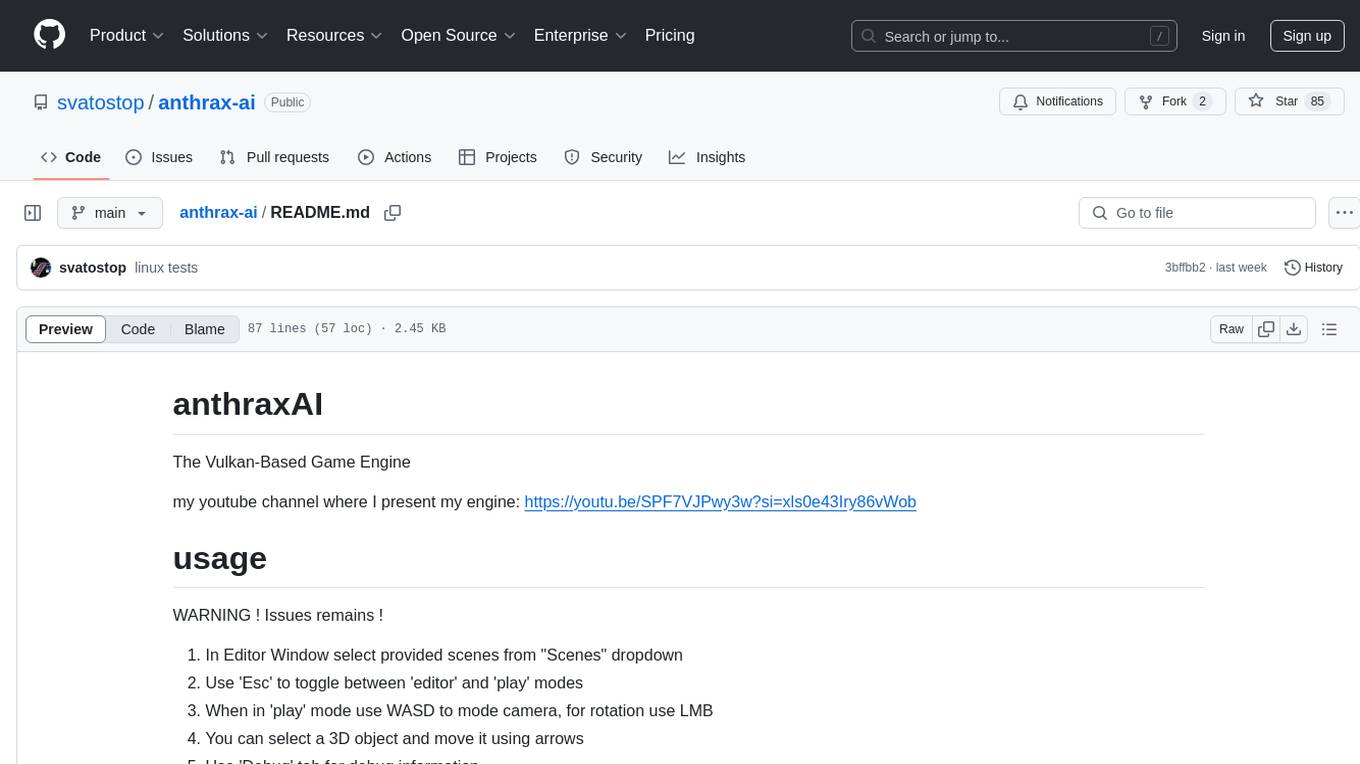
anthrax-ai
AnthraxAI is a Vulkan-based game engine that allows users to create and develop 3D games. The engine provides features such as scene selection, camera movement, object manipulation, debugging tools, audio playback, and real-time shader code updates. Users can build and configure the project using CMake and compile shaders using the glslc compiler. The engine supports building on both Linux and Windows platforms, with specific dependencies for each. Visual Studio Code integration is available for building and debugging the project, with instructions provided in the readme for setting up the workspace and required extensions.
6 - OpenAI Gpts
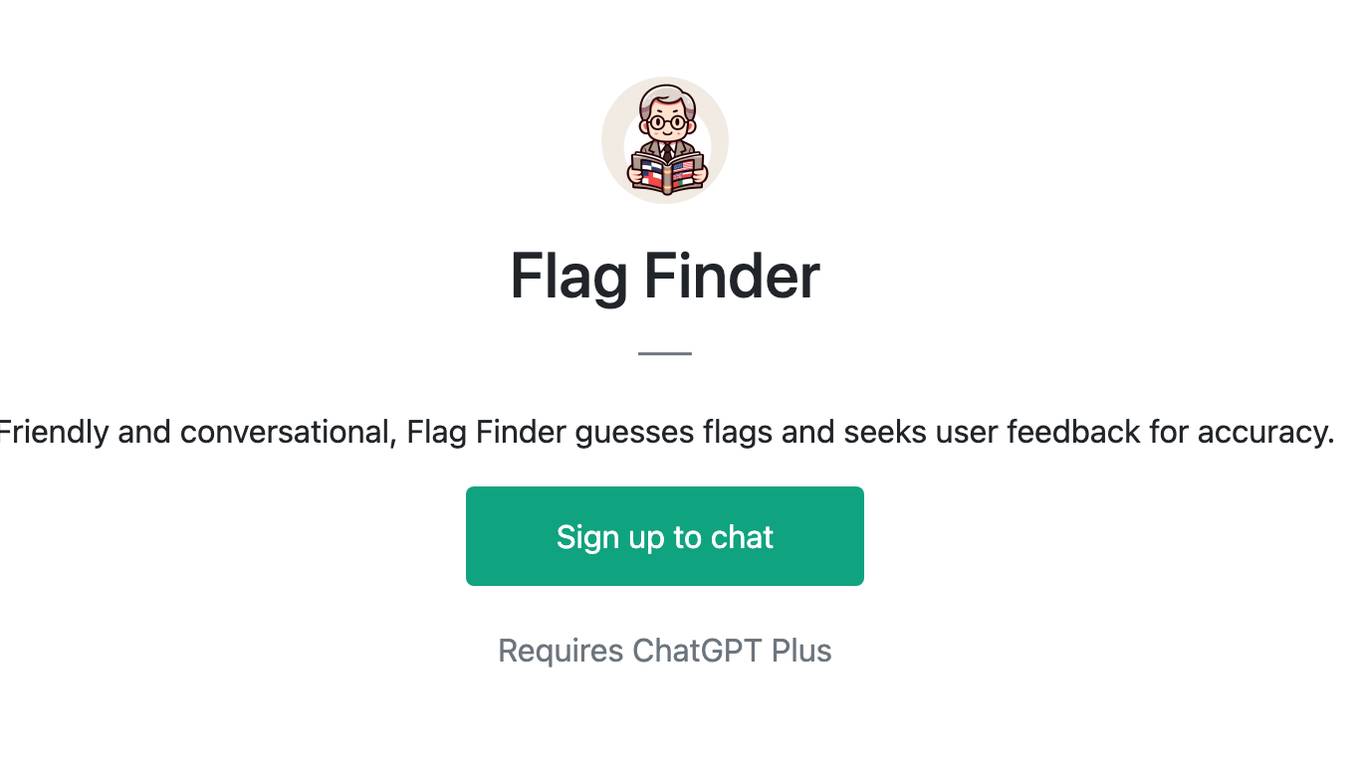
Flag Finder
Friendly and conversational, Flag Finder guesses flags and seeks user feedback for accuracy.
Disclosure-Analysis
Upload disclosure documents, and I will summarize what's going on, identify red flag areas to look closer at, and answer all Q&A!

